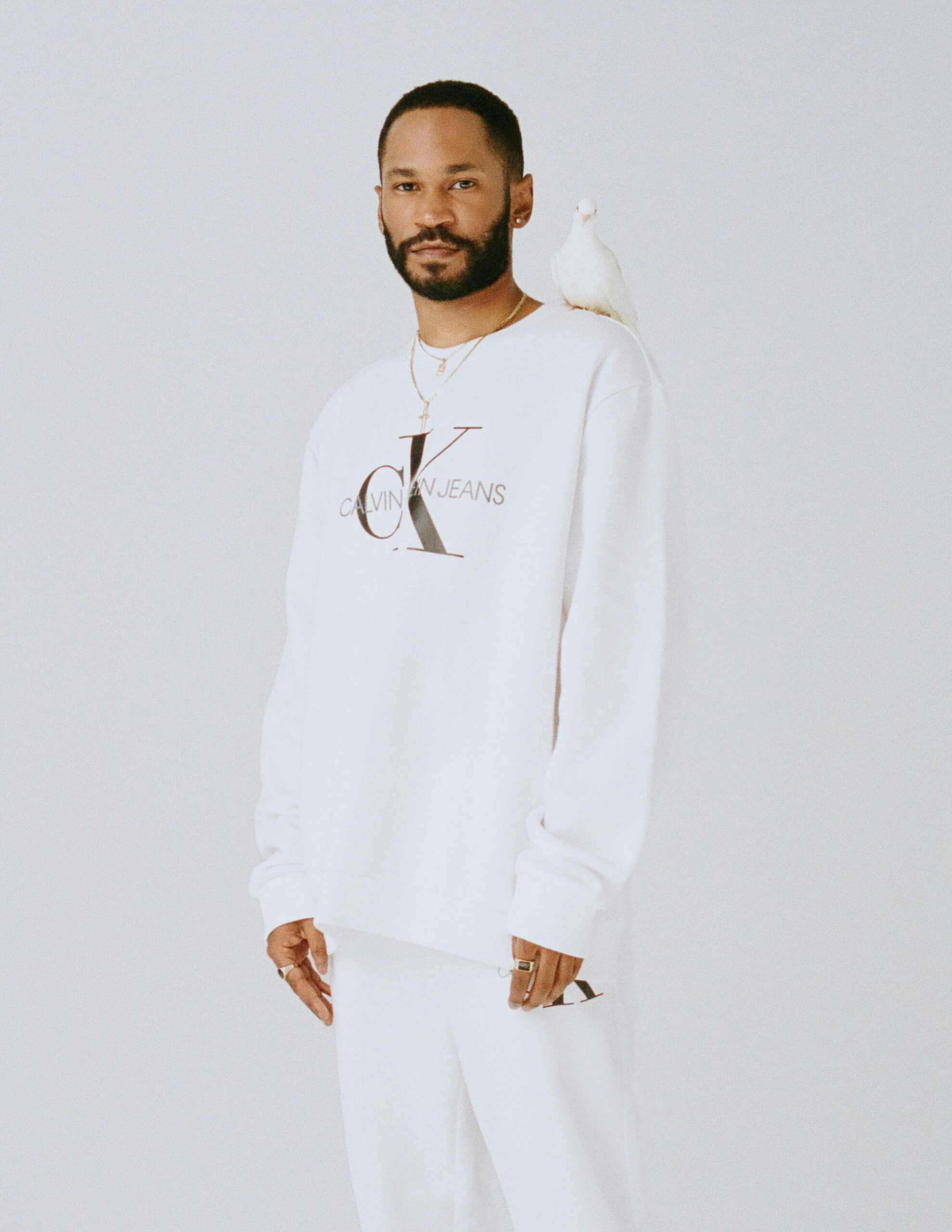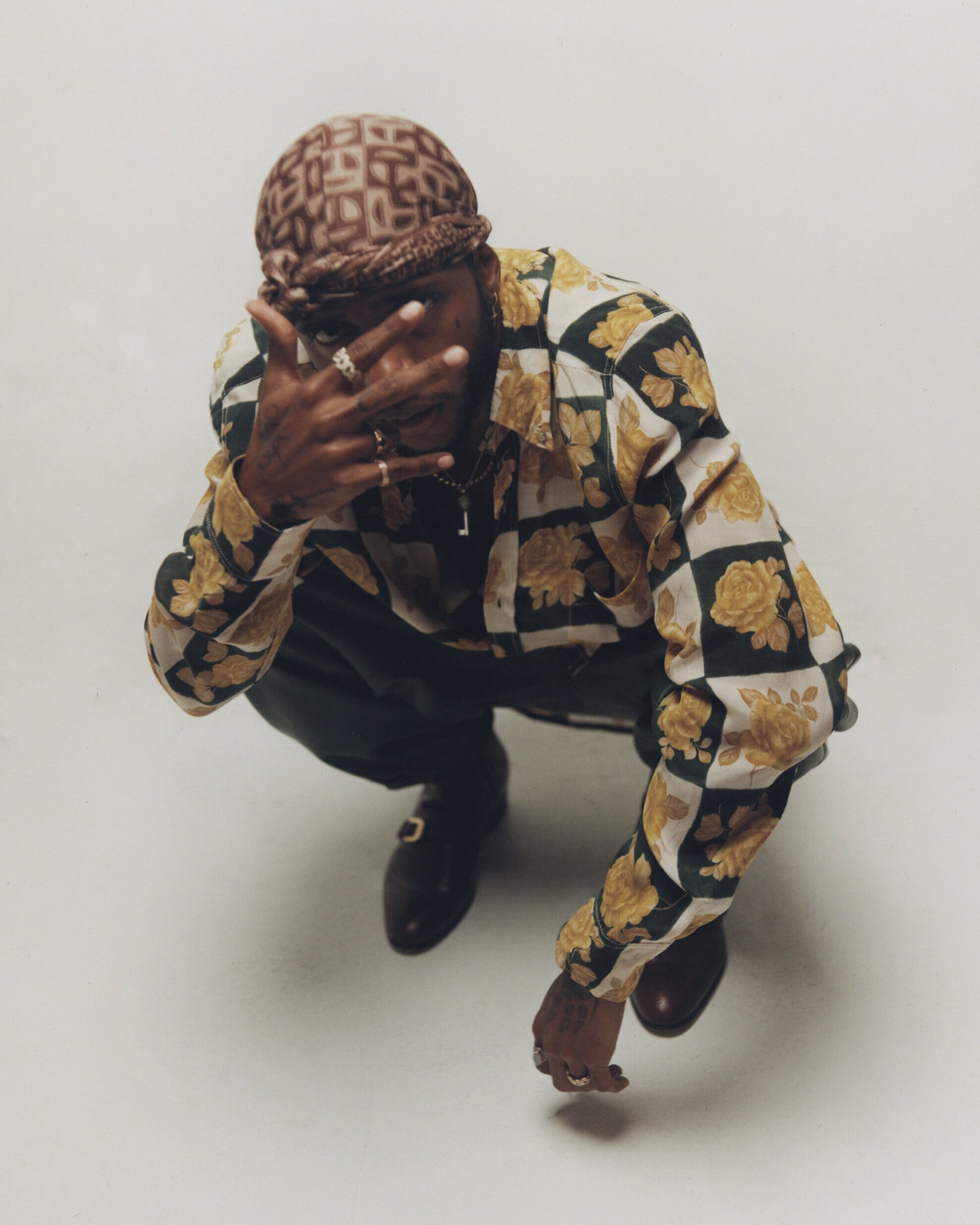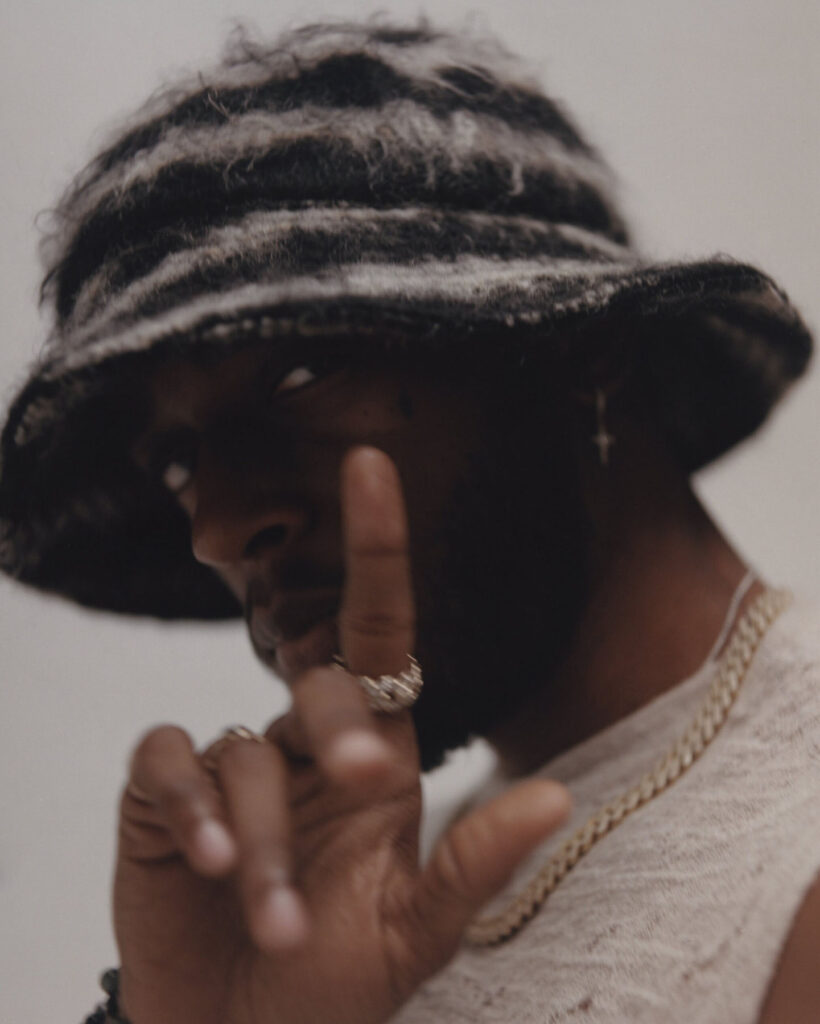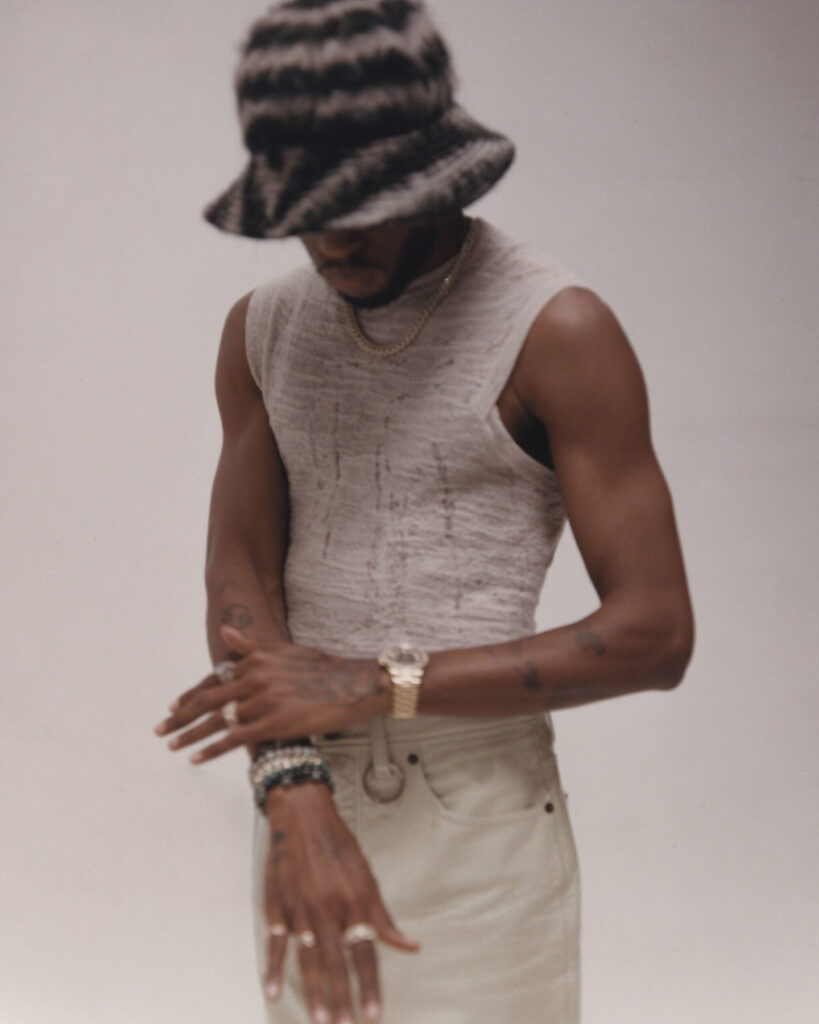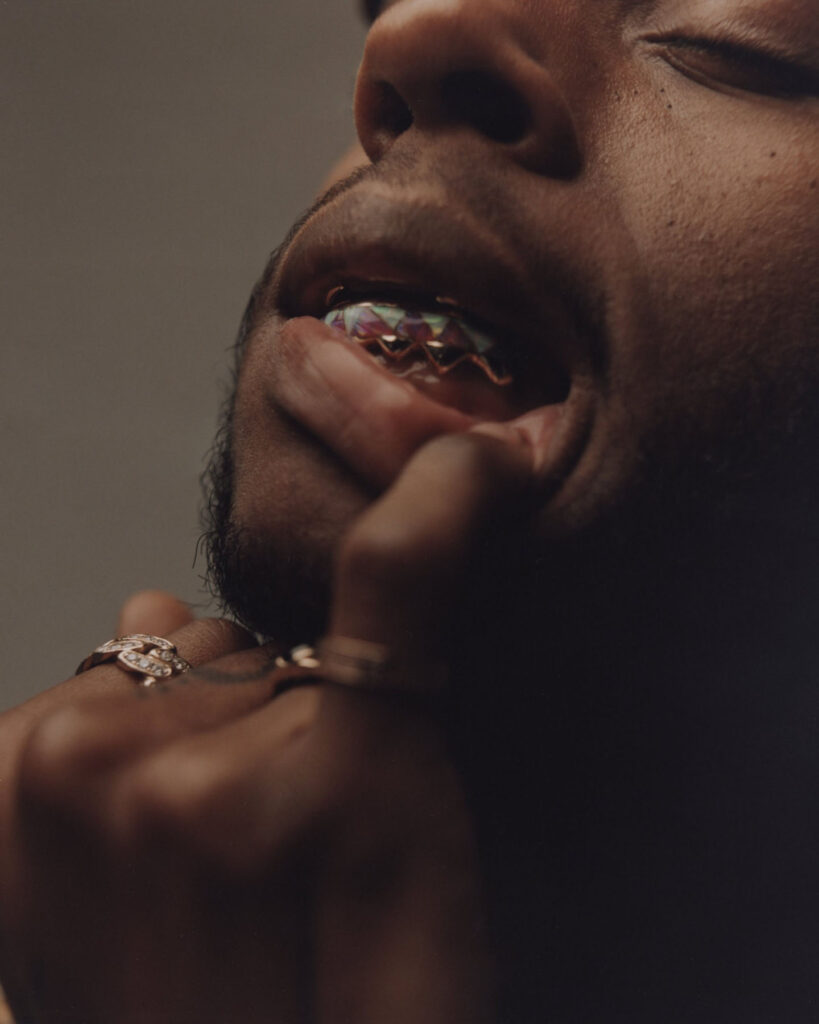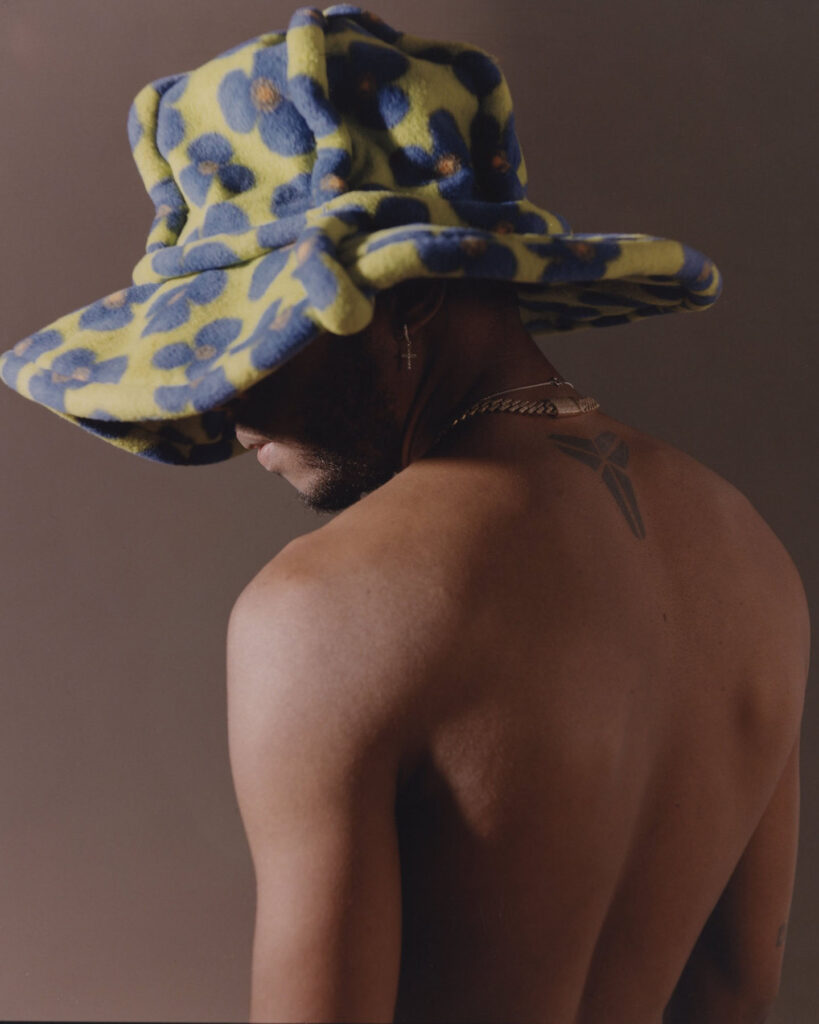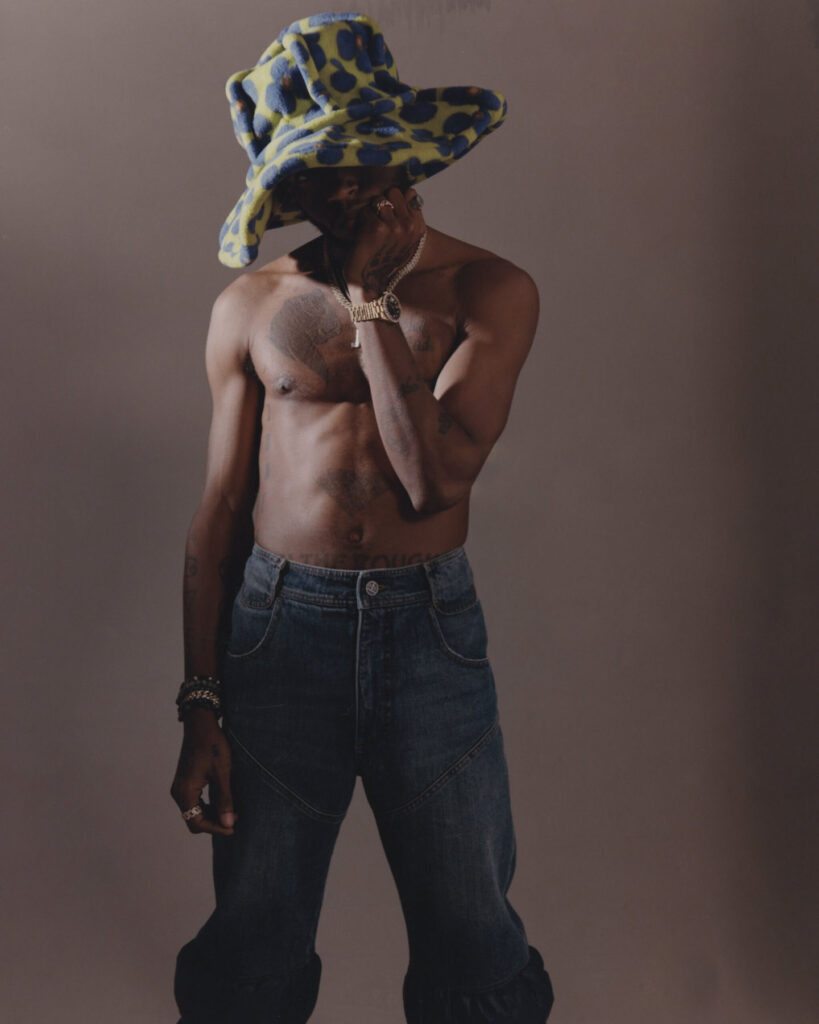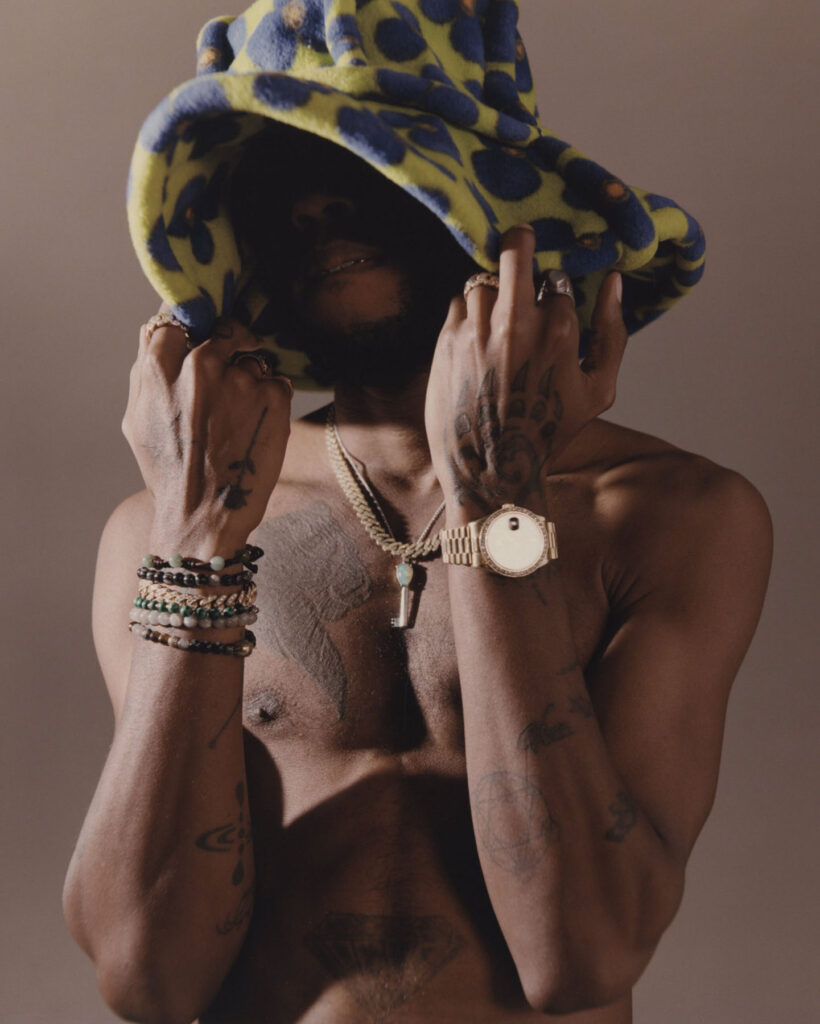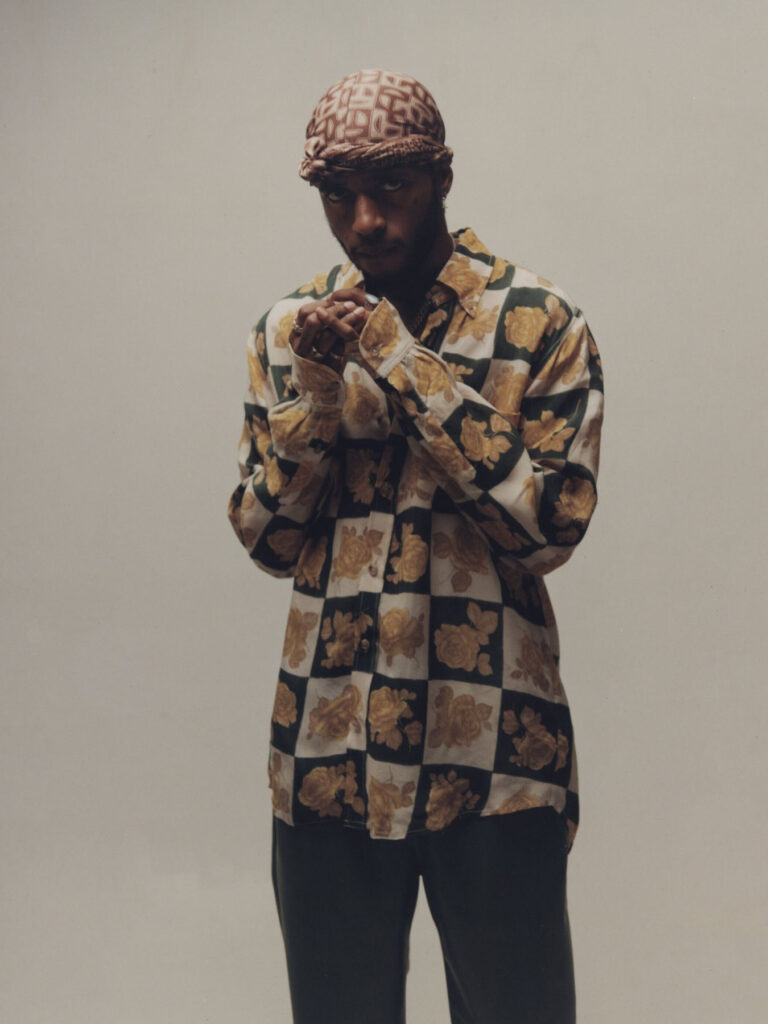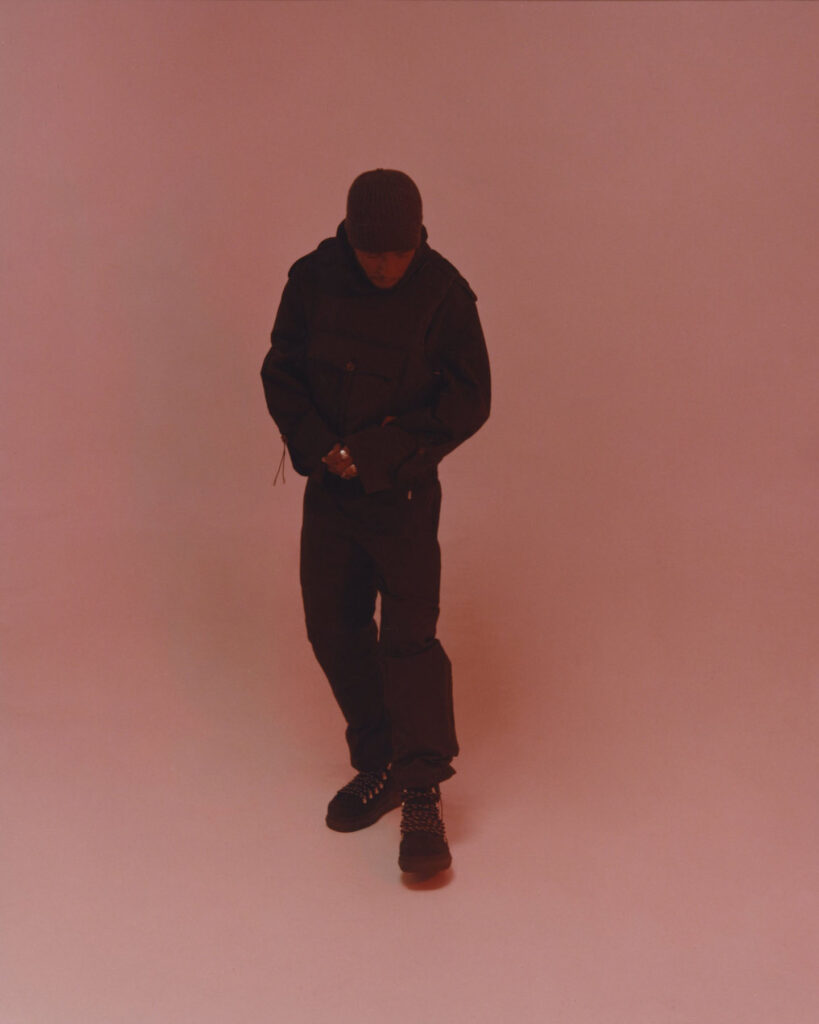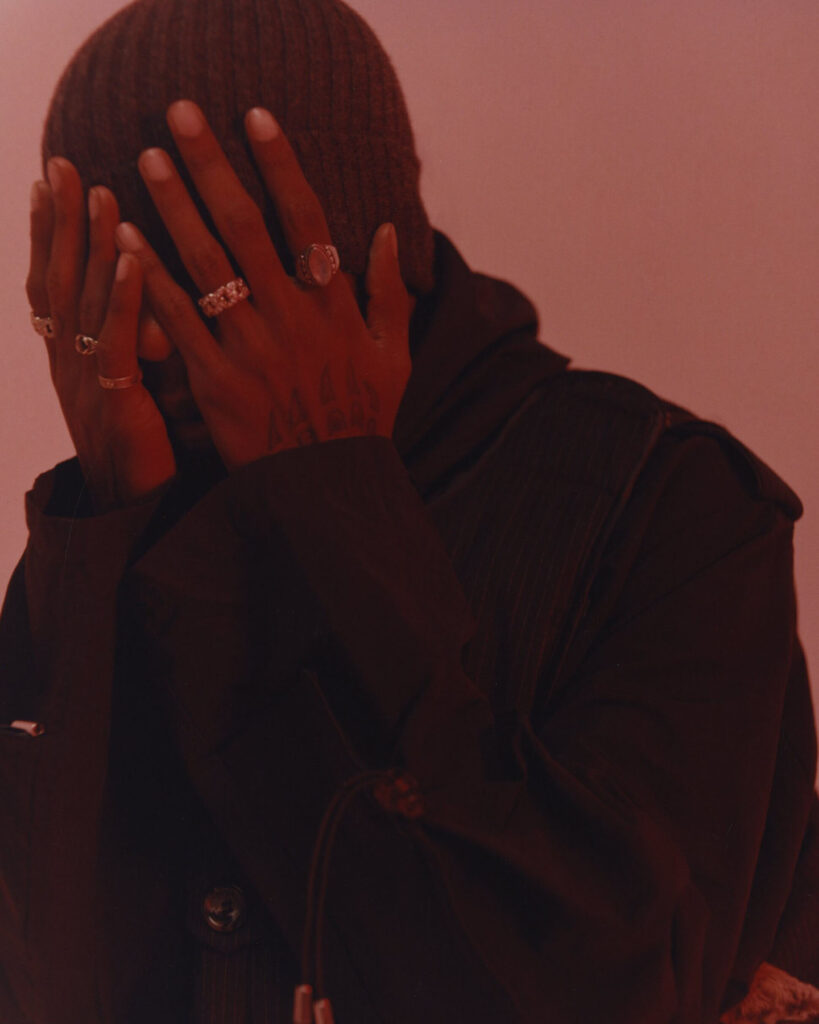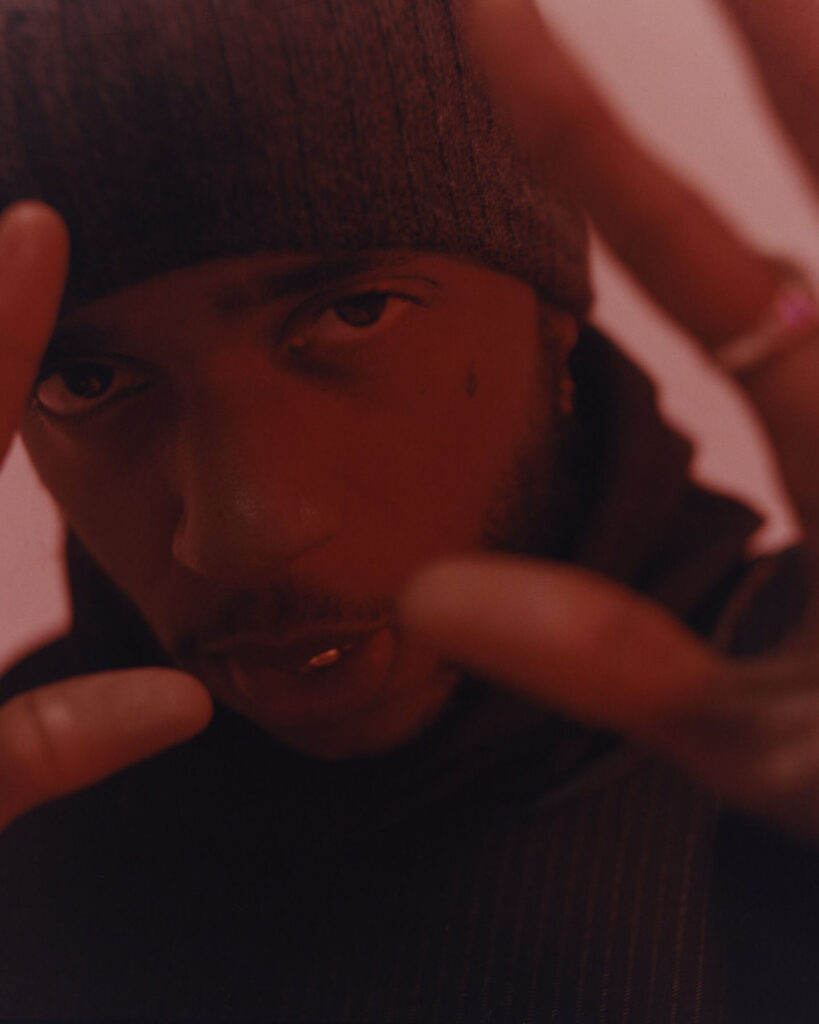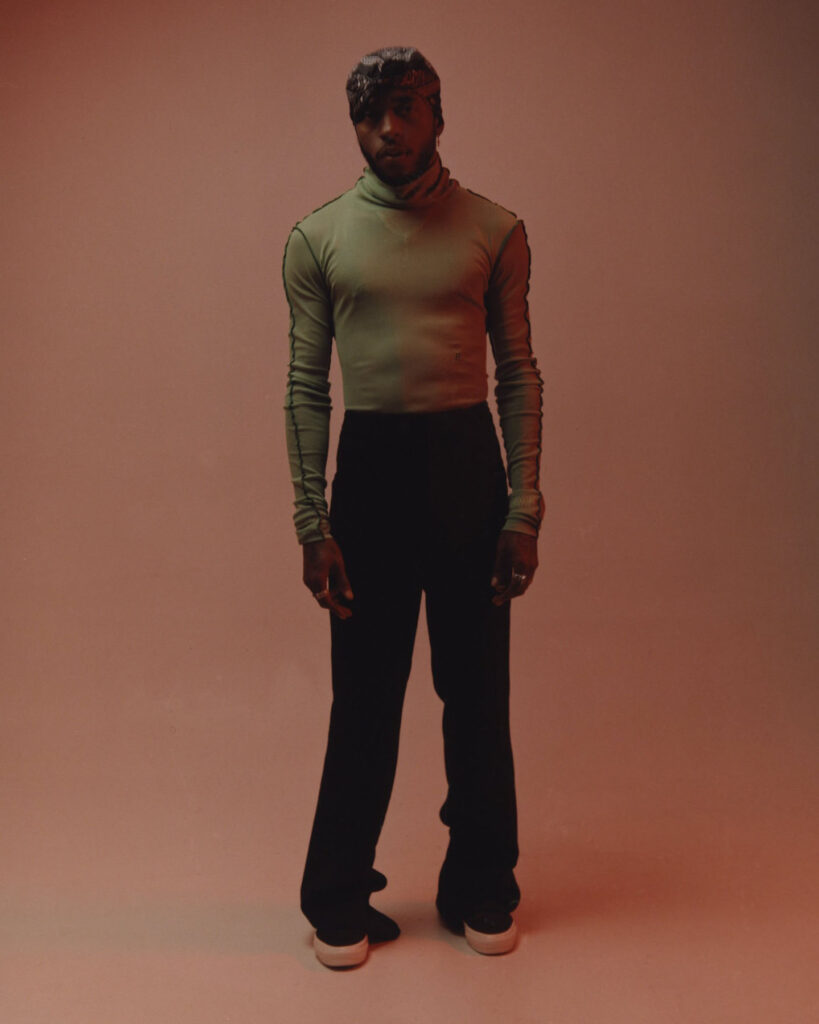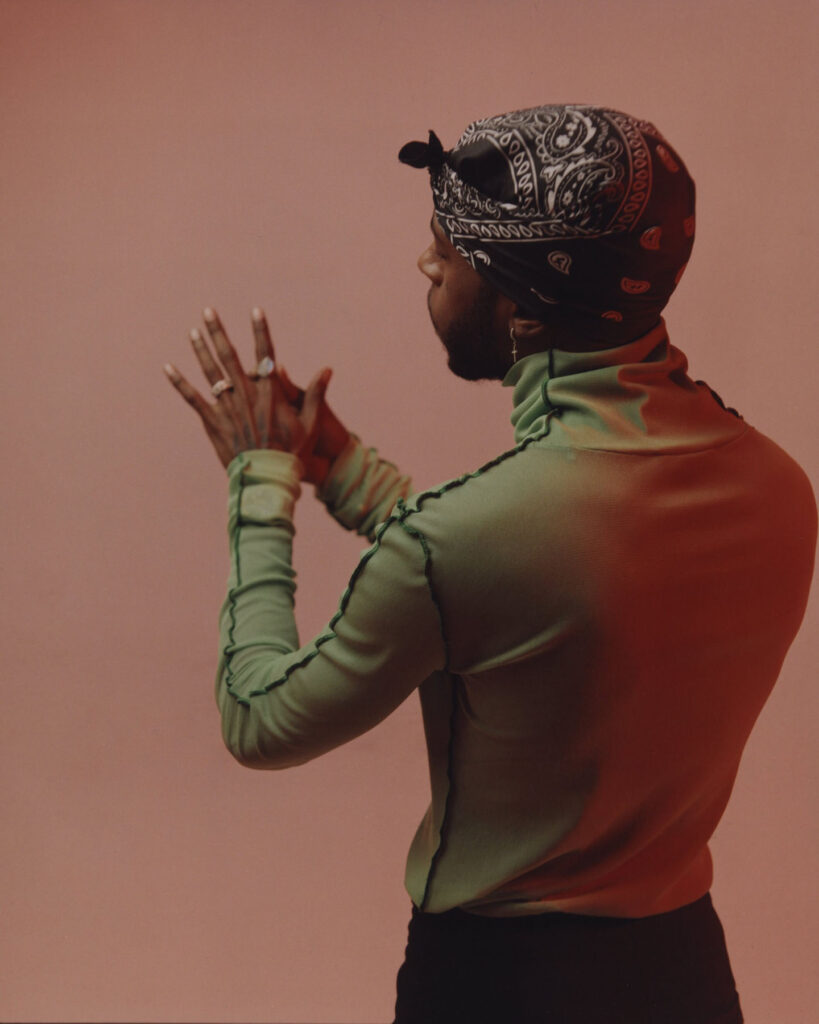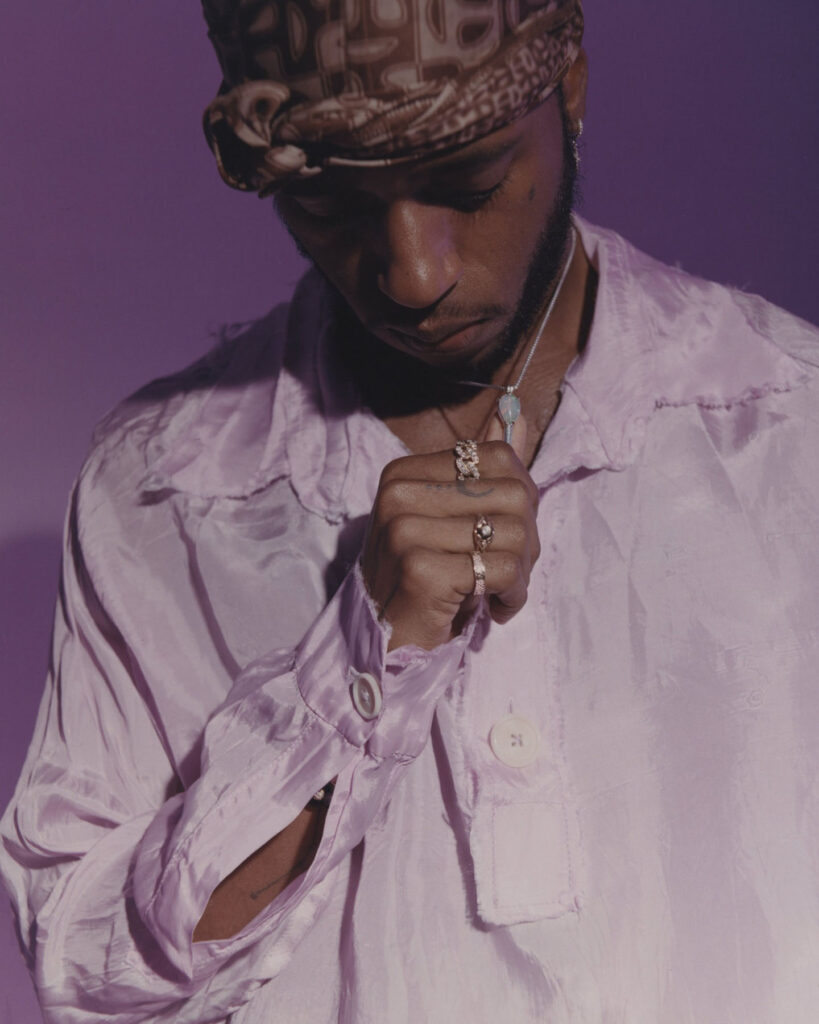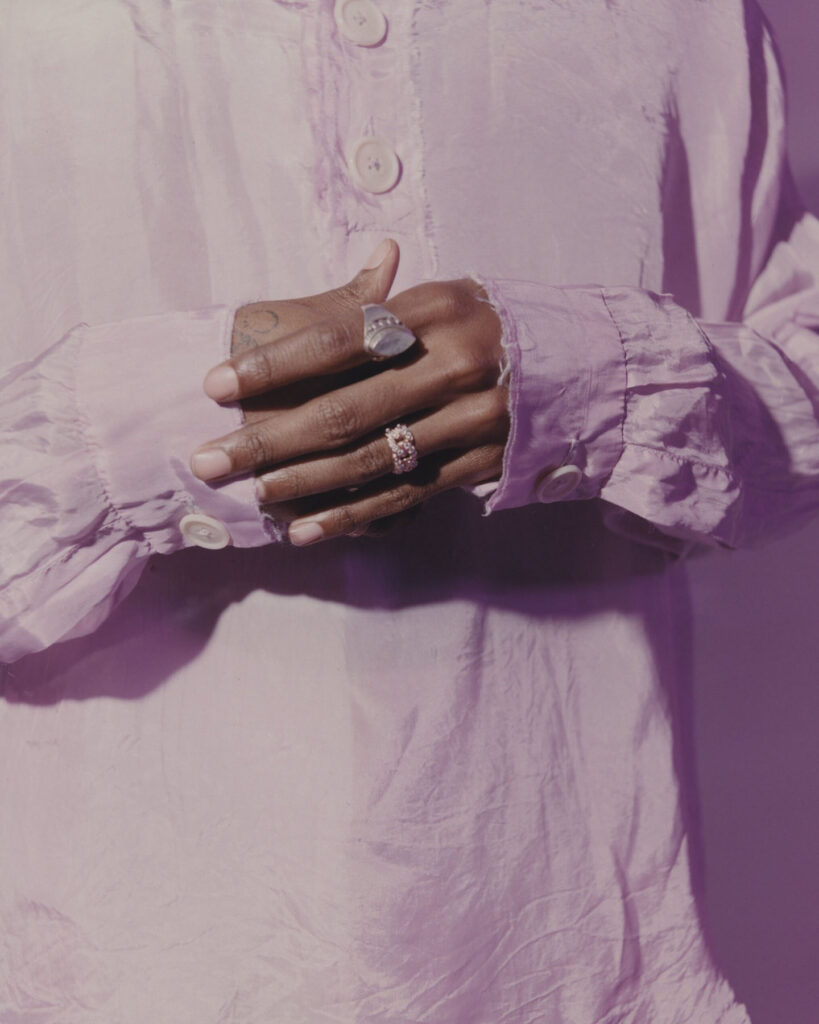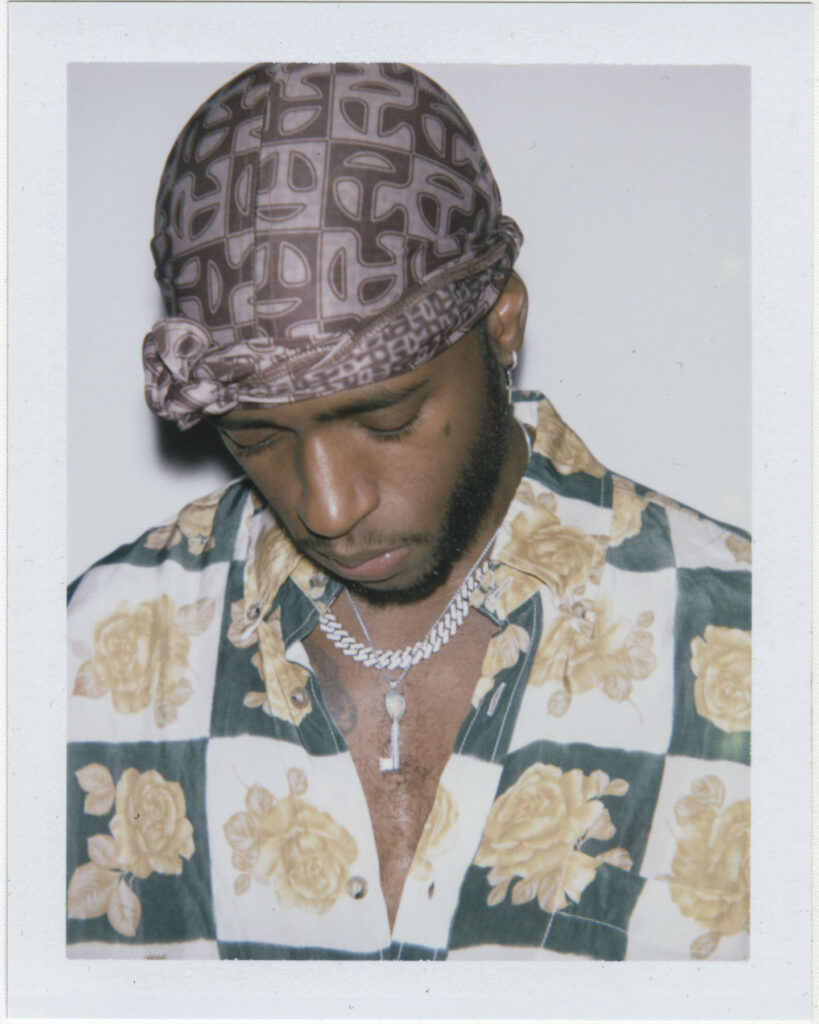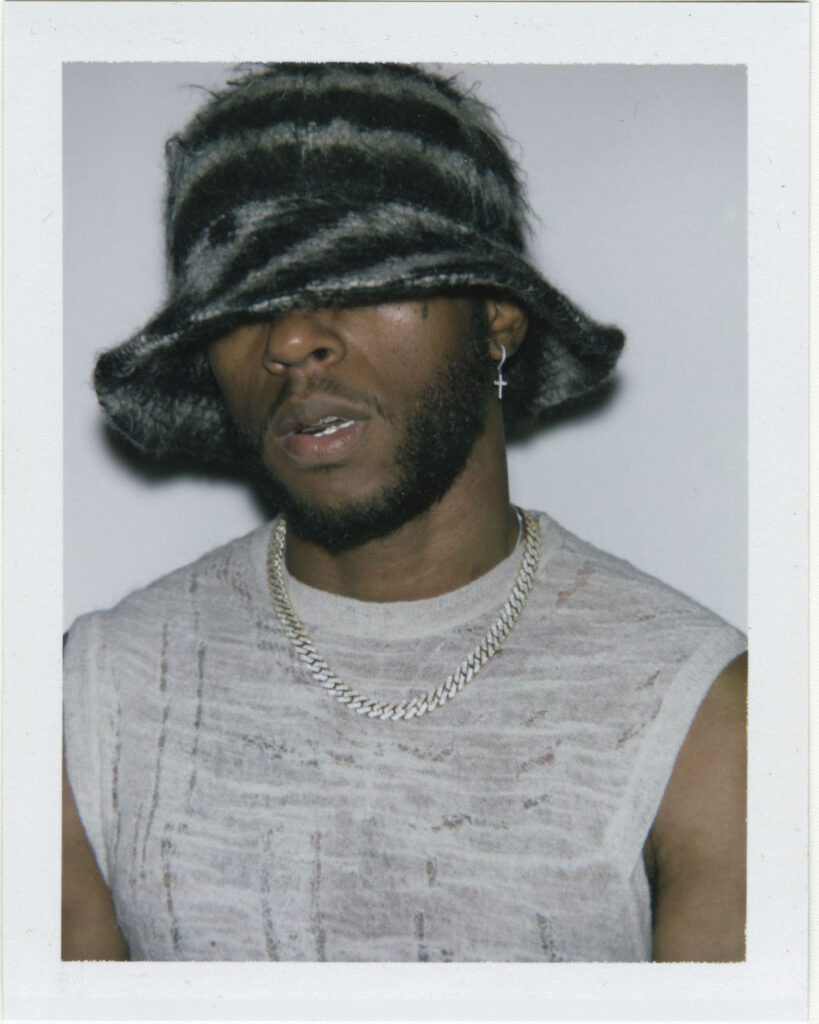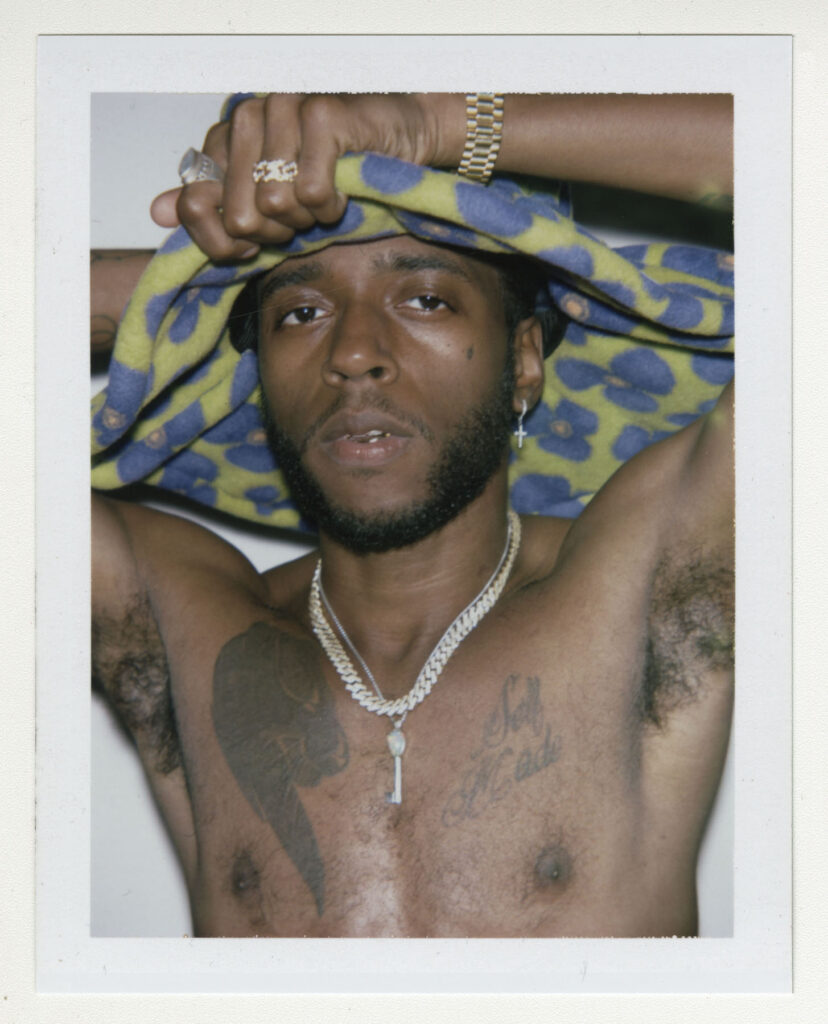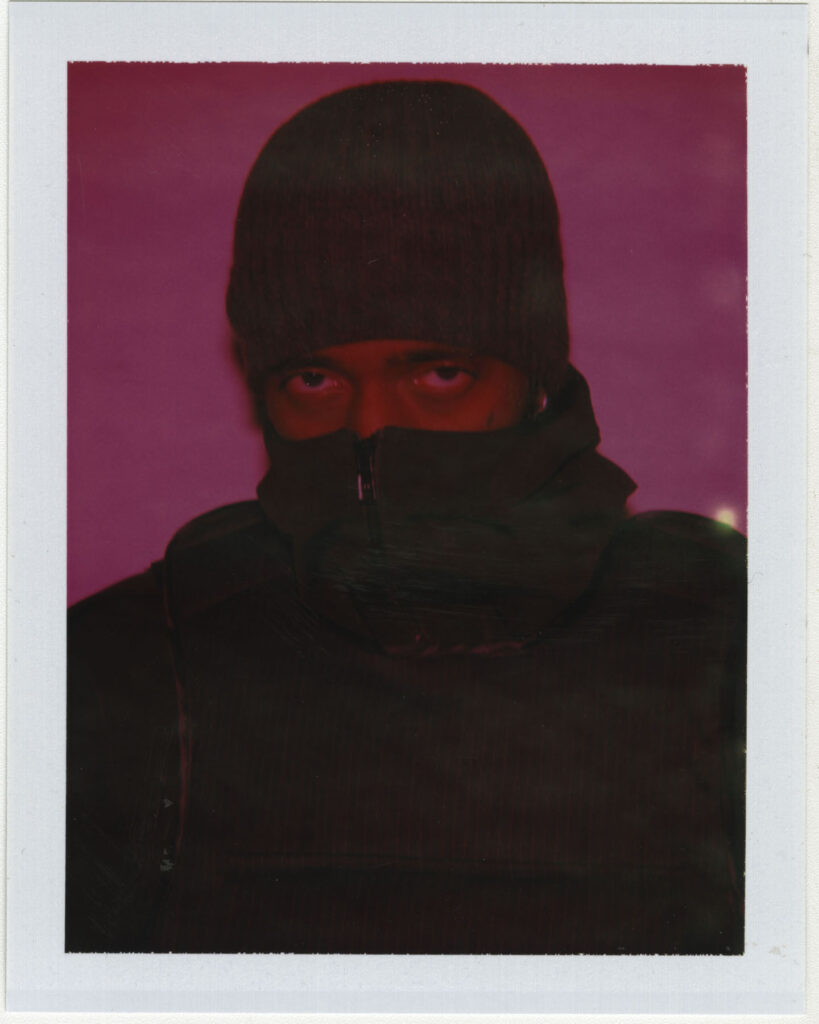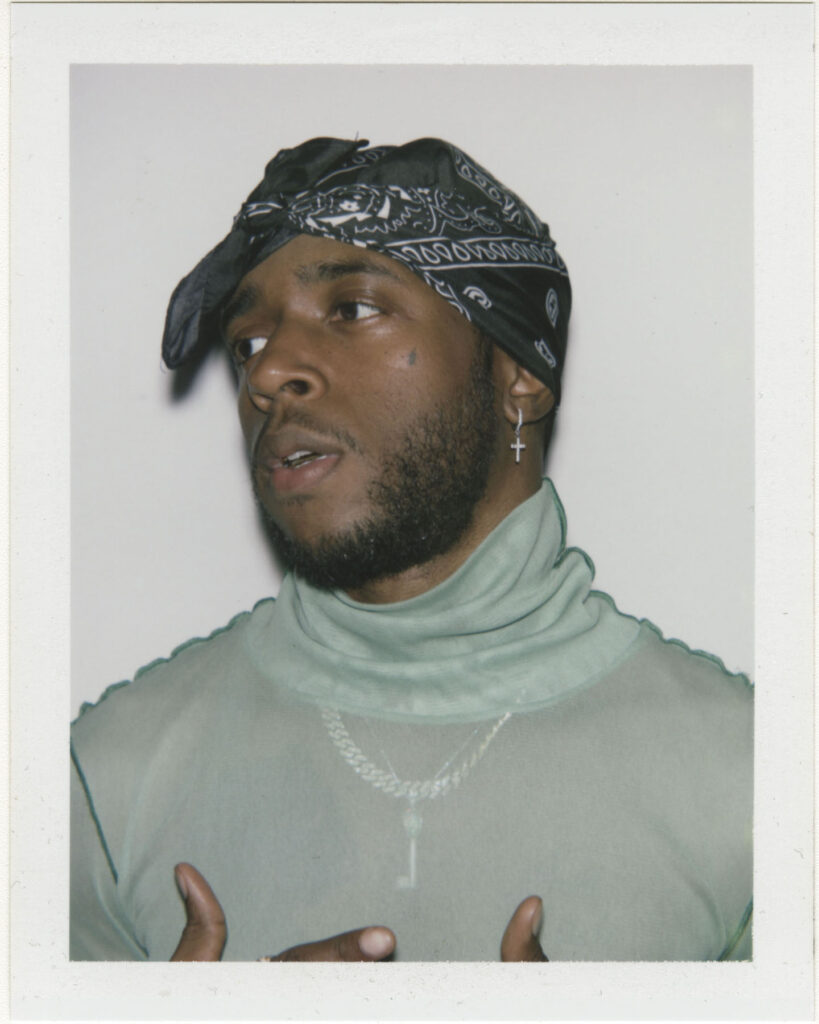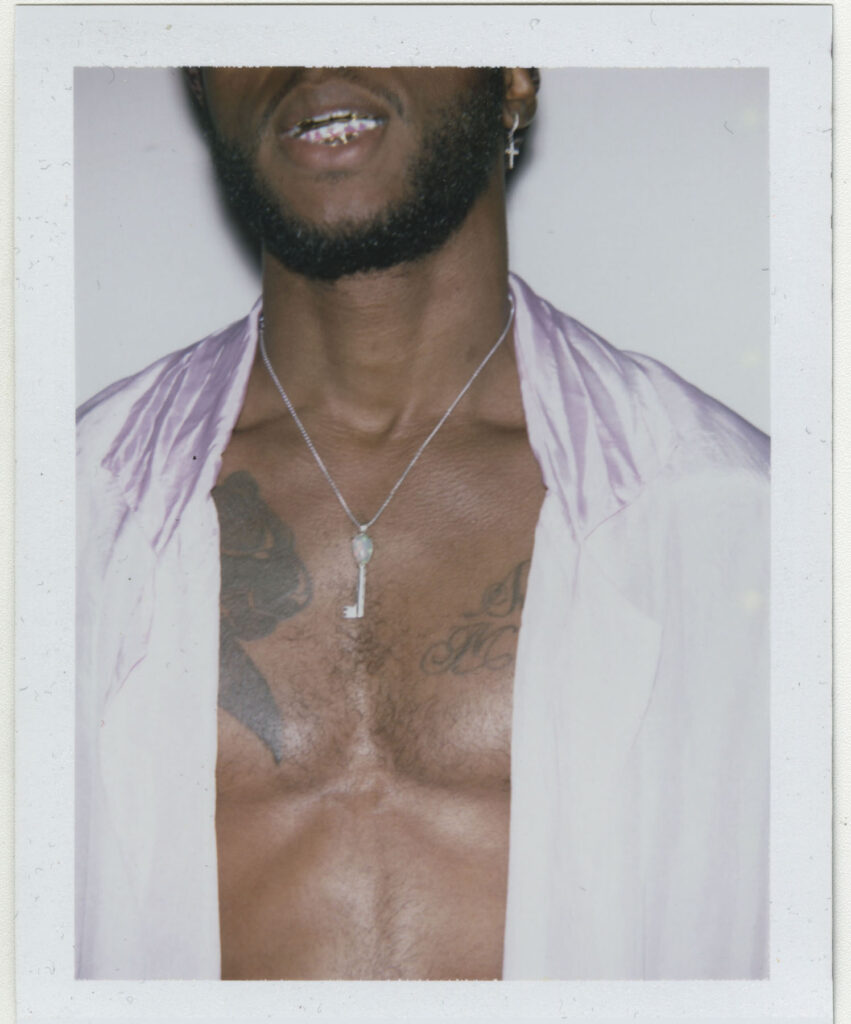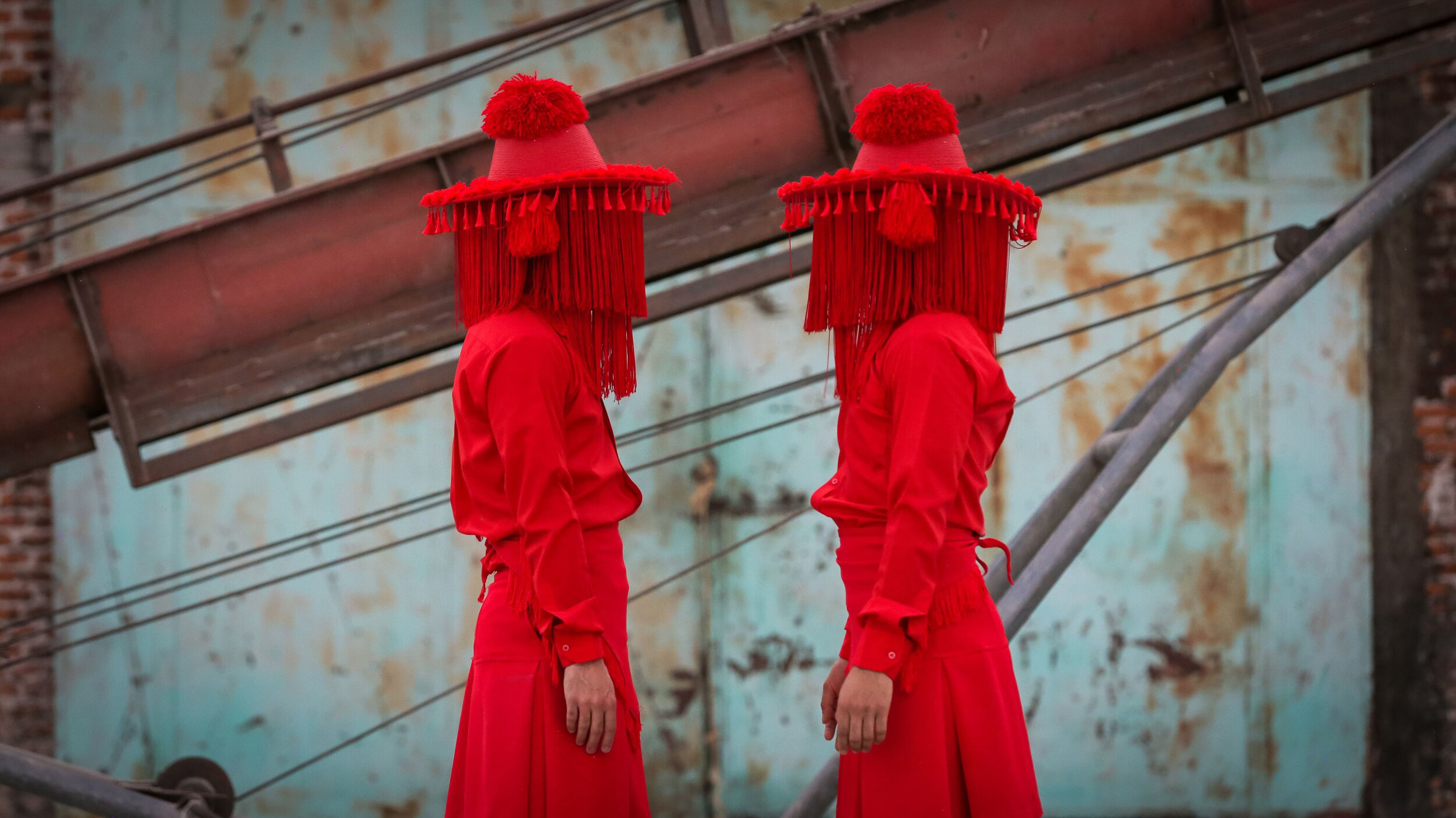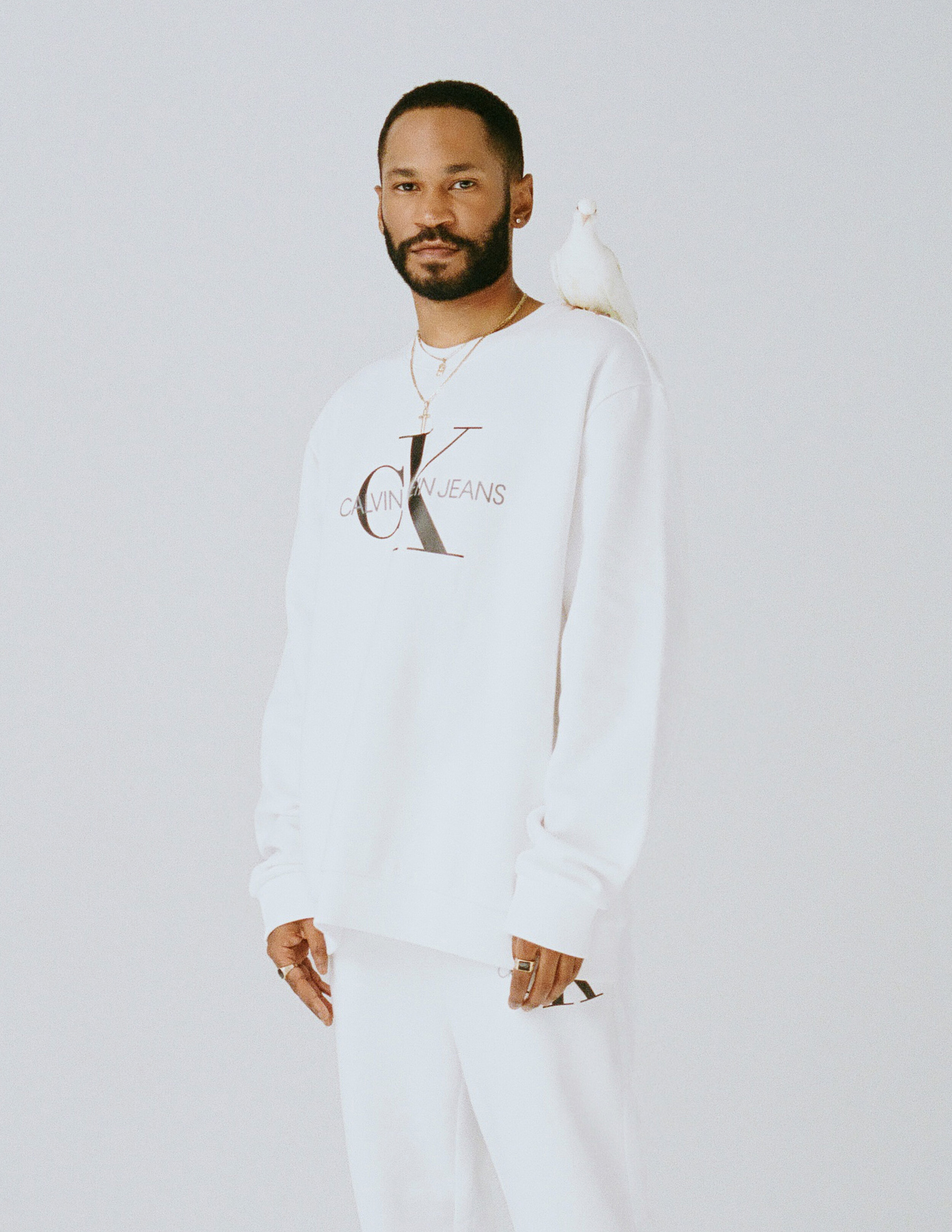
Pivotal points and personal breakthroughs
As the sun sets earlier and the air gets colder–as the weather folds–Louis Kevin Celestin (also known as Kaytranada) is returning to Los Angeles to pick up where he left off pre-pandemic, with a new understanding of himself. When the coronavirus broke out, he was in the midst of lining up studio sessions with artists, shooting a new series of visuals, and transitioning to a more collaborative creative process. Bubba–his sophomore album–had just been released and he had tour dates booked around the globe throughout the year. Be that as it may, he had to wrap things up and return to shelter in his Saint-Henri apartment. The pulse and tempo of his raw and distinctive take on out-and-out dance music would also have to stay confined in the custody of TikTok dancers for the time being.
2020 was meant to be everyone’s year, but our most ambitious intentions subsided to a transformative journey of trials and tribulations as things went a whole other way. Abundant introspection has brought many of us to retrace our own pasts and re-imagine our futures in tides of hope and fear. The conversation Kevin and I shared was the occasion to revisit pivotal points of his life and personal breakthroughs of the past year, as well as the impact it has had on where he stands today, in the world and within himself.
Born in Haïti and raised on the outskirts of Montréal, his notion of belonging has been in continuous motion over the years. Grappling with his perspectives on queerness lead him to find multiple groundings for his identity, as an artist and as a person. Growing into the power of only saying «yes» when he means it, of setting boundaries and maintaining them has meant asserting a much truer self. After spending the summer re-connecting in different ways–with nature, with friends, with other creatives, with himself, with film, with literature, and so on–he is back in phase with his own rhythm.
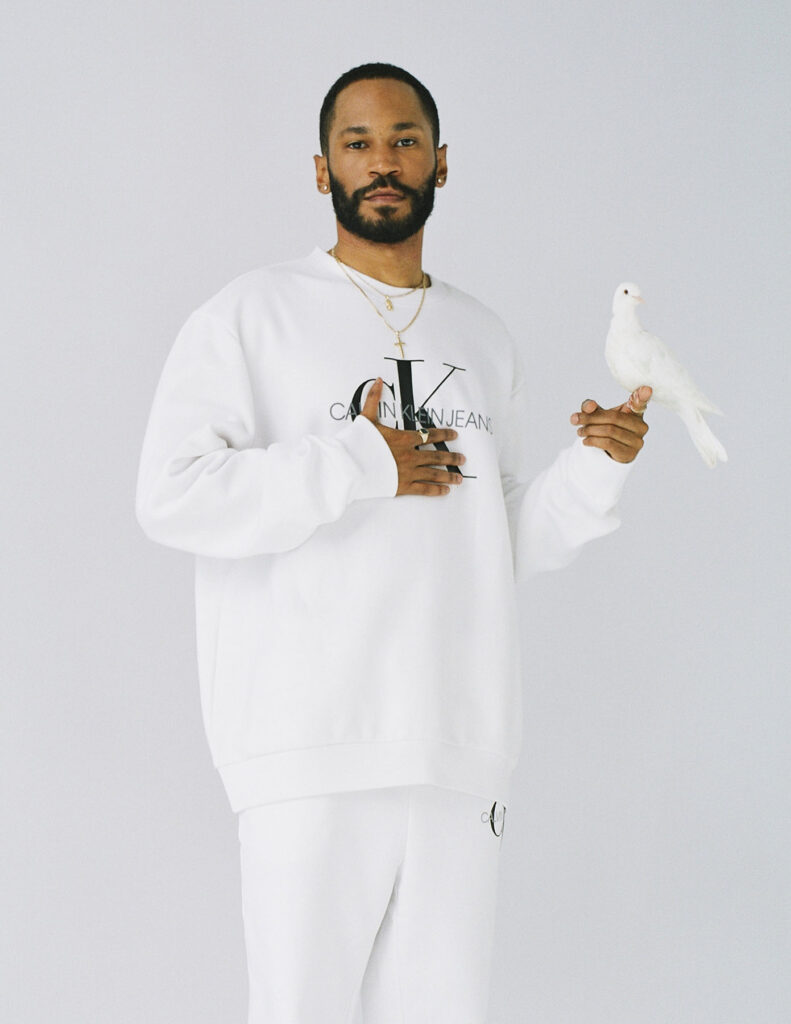
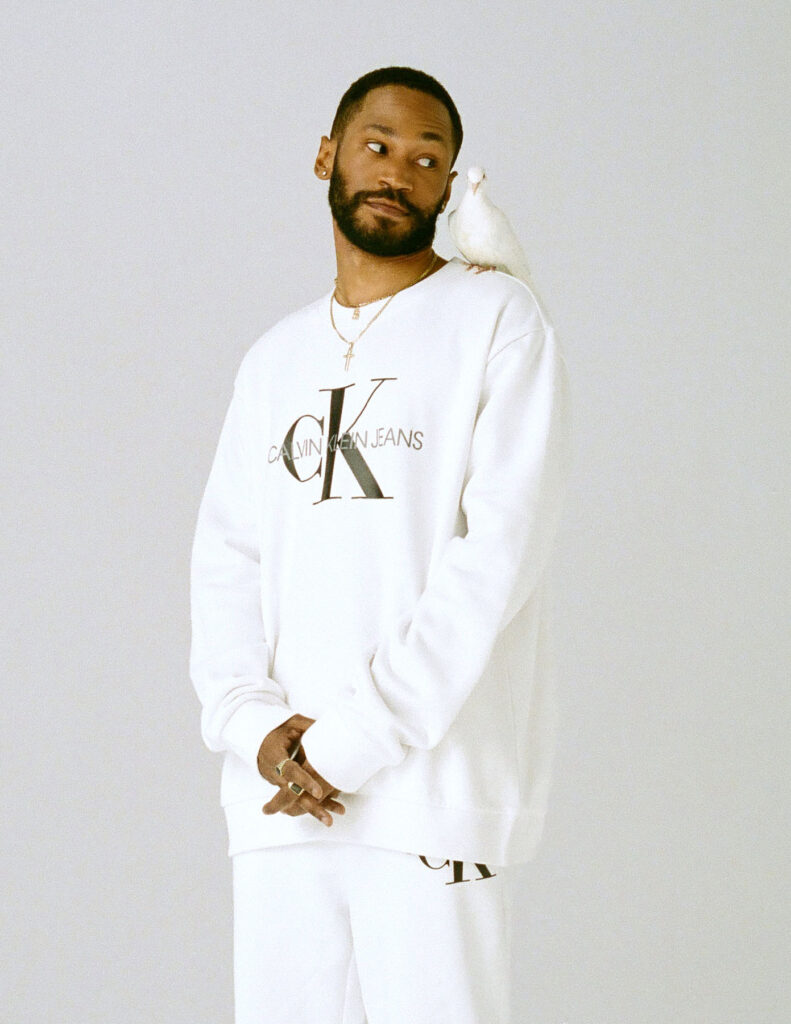
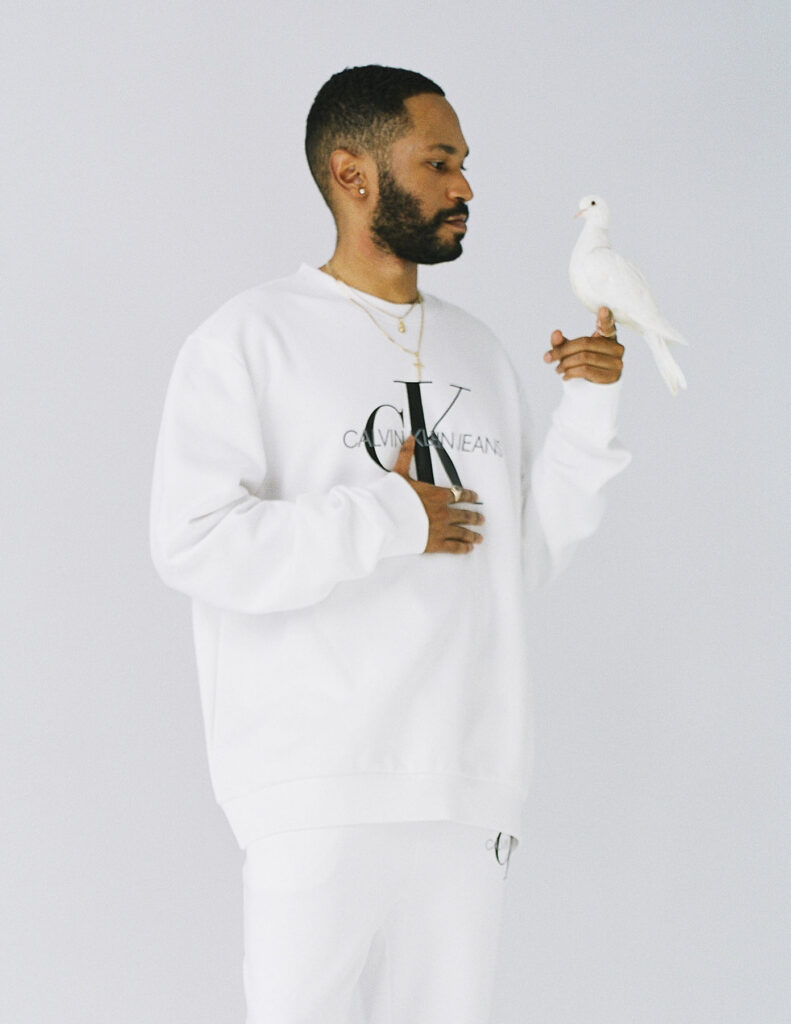
Over the years, you’ve shared with me how touring and the acclaim that has come with it has been a source of relief at times, and the cause of distress at others. How has your relationship with being on the road shifted?
In 2014, I was going on my first tour. The ‘If’ and ‘Be Your Girl’ remixes were buzzing, I had shows in Montréal getting sold out, people were showing up, it was kinda crazy, everything was growing at the same time… so my first tour in Europe was… a first tour. It wasn’t a disaster but my manager and I were learning a lot, especially my manager because I was always counting on him. I’d never been to Europe. I went to London first to just chill then we went to Italy for the first show and the hotel was in the middle of nowhere in some outskirts really far from the city and I was like «what the fuck, that’s Milan?» *laughs* […].
Touring was like an escape for me; when I went to LA for the first time, I met my label and the Soulection people, and it was like wow I’m finally there. When I’m in LA, I’m in a good space that’s nourishing to me, good vibes.. that’s what I’ll pay attention to– seeing, things I’m aware of… I used to not deal with it the right way and wouldn’t do much out there, now I’m trying to be more present mentally and trying to be less shy too, not that there’s something wrong with being shy– just not overthinking or holding myself back.
All this LA shit happened before my first European tour actually, which is crazy. I was in LA, I was finishing school, which I didn’t even finish… I got the Boiler Room LA offer, then I went to Europe that summer. I came back to Montreal and right off the plane I had to head for Murale Festival, one of the first ones. That’s when I saw that a lot of people were there just to see me, there were so many people dancing to my shit, I played some unreleased stuff that later became hits.
A true homecoming. So when did the feeling switch up?
Yeah, so when I went back on tour, my first album wasn’t out yet, I had only released 2 singles with XL– so I was on tour with no new music, which really bothered me because I was either playing other people’s music or songs from 99.9% that wasn’t even out yet, and people wouldn’t recognize [them].
I would often tell my manager ‘I can’t do this anymore’ and he would be like ‘hang on man, you can do it’, to a point where I got really sick on tour– overworked, stressed, I couldn’t eat, and thank God my brother was there because it really saved me.
«I would be trembling with shivers, I had to perform sick and go right back to bed shaking, throwing up my meds, I couldn’t eat, I had to force myself to eat soup… at the same time I was drinking a lot and I didn’t know that drinking was gonna kick my ass the way it did, like every night getting drunk, my head was hurting, it was killing me… there was so many things that I didn’t realize, I was kinda overweight too… I was not well.»
All that back to back stress accumulating into a burnout… how did you cope with that?
I stayed home for much of 2015, I had money though, which was cool, so I was really like «okay this career shit works, I’ll be back on tour later on». It was bitter-sweet because I loved to perform but I didn’t like traveling from a city to the next, so it would’ve been a lot better if I had like 3 days off in Berlin, because I wanted to see Berlin, I wanted to see Philadelphia…
I had to take a long break, I was at home, I really wanted to move out and get my own spot– my mom couldn’t understand it– but I was like ‘I’m still sharing my room with my brother and I’m 24 years old this is ridiculous’… I hadn’t come out of the closet yet, so that was just before I put out 99.9%.
So while there was so much changing on one side of your life, it was more of the same on the other
Yeah so then I stayed home, worked on the album; I didn’t even work in the studio with anyone on that album, I mixed it by myself and then I turned it in, and the album came out in May 2016, a couple of weeks after the article where I came out.
I came out years before but I had to re-come out again– because I had told my family I was bi to be more acceptable, but
«it got to a point where I told them ‘I’m not gay anymore, I’m delivered’, forcing myself to not-be-gay and to have girlfriends, because my friends would ask me ‘so when are you gonna have a girl?’, my uncles, everybody was worried for no reason, like, mind your business.»
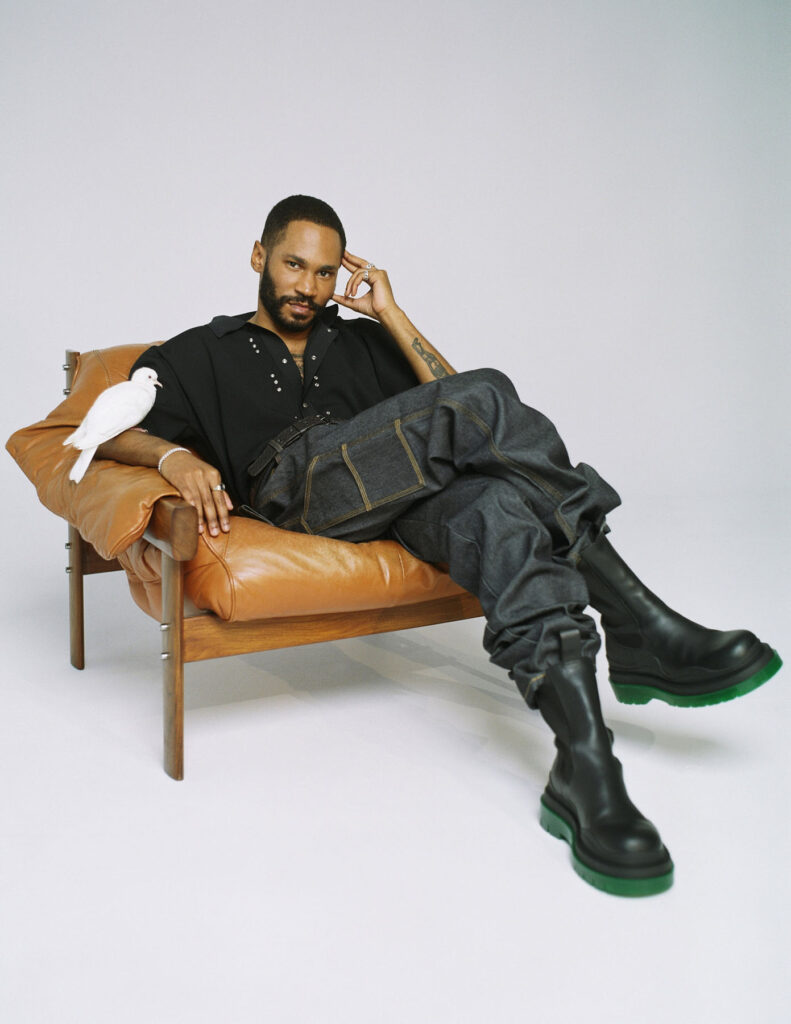
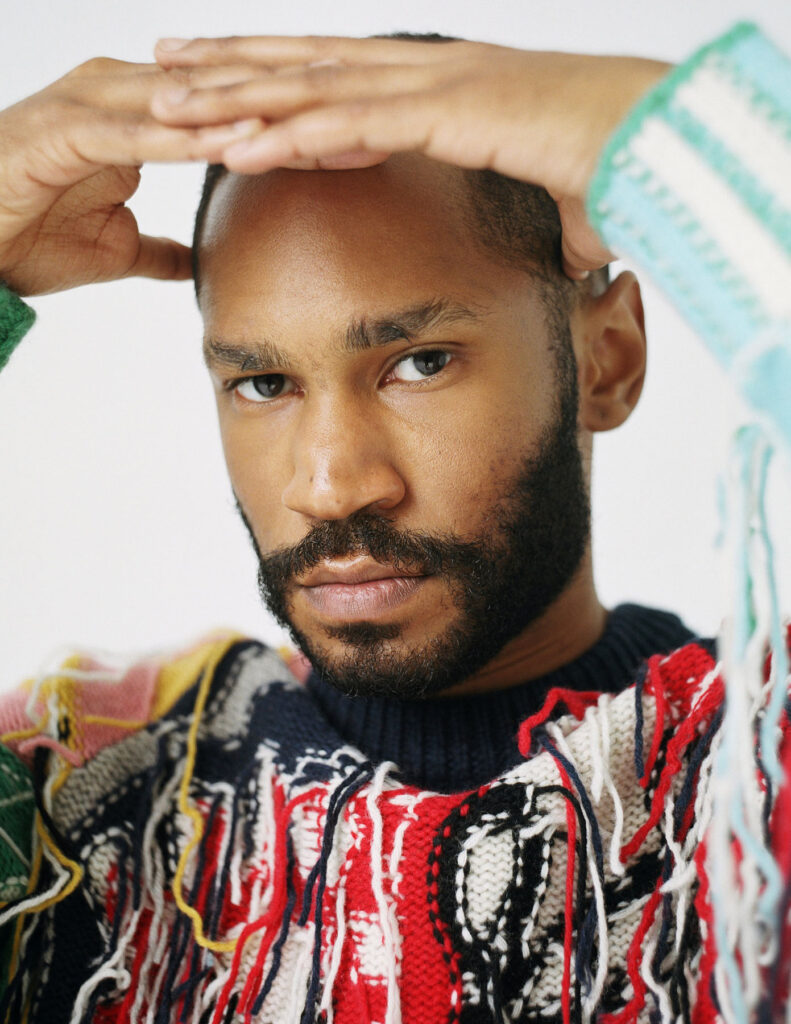
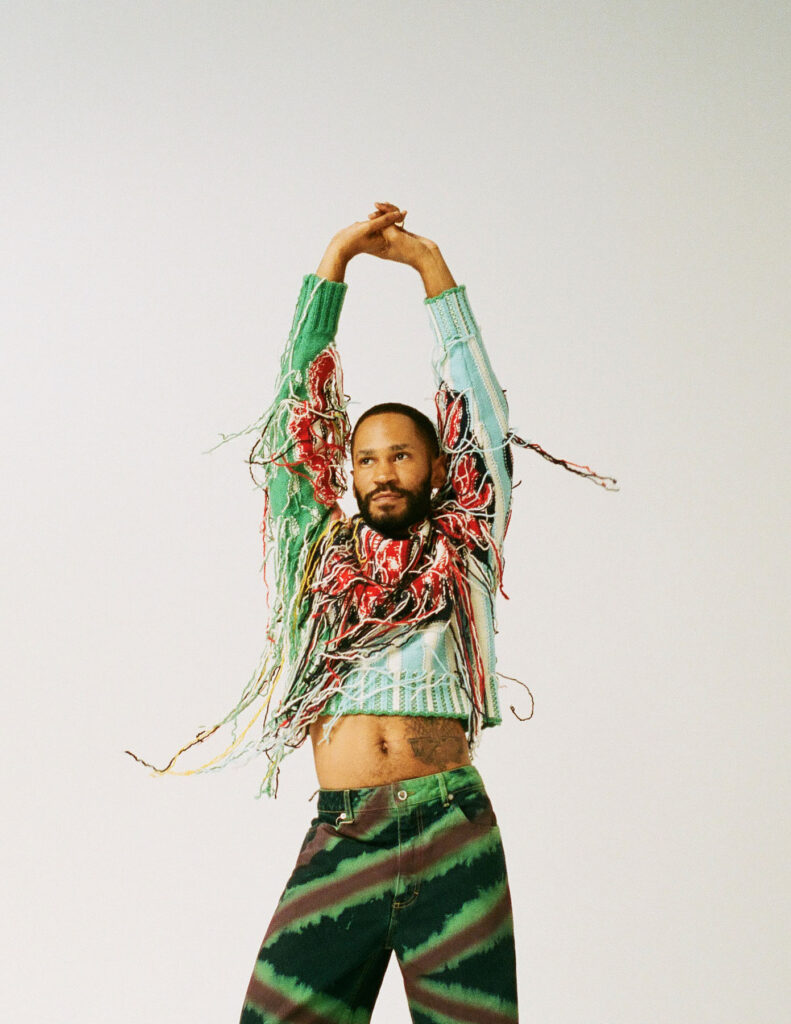
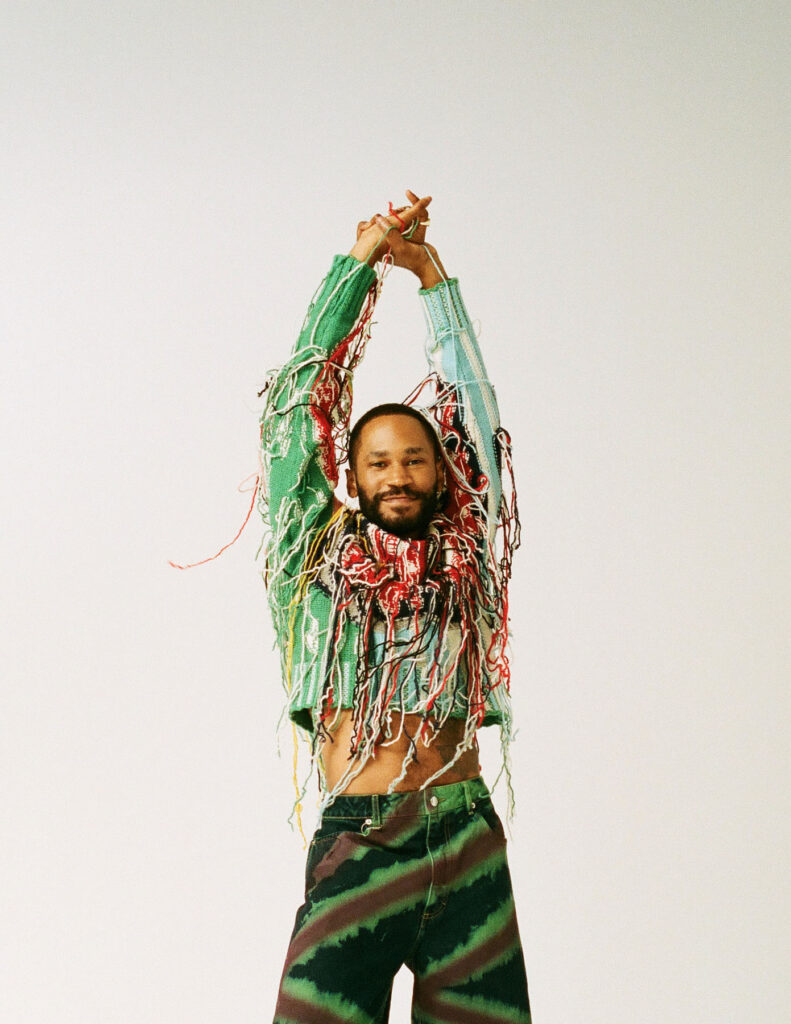
Did that help you understand yourself better?
I mean, there was a typical identity of being gay, so I wasn’t sure of myself because there weren’t gays like me that listen to Madlib or like Mobb Deep or Tribe Called Quest or M.O.P., raw shit like that– that’s what I listen to every day. I got my own divas that I like but it’s like Mariah Carey or Janet, she worked with J Dilla you know– because they’re hip hop.
Yeah, even Mariah singing over Shook Ones or Cam.
While a lot of people have been adapting to the concept of remote working, you’ve said you like working that way better from time right?
Yeah I mean at the time I used to, but I don’t want to do that anymore, because I always know [how it’s gonna turn out] when I work remotely, so now I really wanna be out there and create with the artists, its more fun. And I used to get too much in my head when I would try to create with an artist and that wouldn’t come out as nice but yeah I know now I’m not gonna just work remotely, and it worked ‘til covid happened– like I was ready, I put out Bubba, which was what I really sound like personally, so people reached out and those that did because of the album, it made me more confident to just do my thing, so that was working out until covid happened and I had to go back home.
It’s ironic that right as you were becoming more comfortable with that way, everything had to shift back to remote working.
Yeah, it makes me forget that I was that way, that I was ready to work with people. Some days I’m like– I’m going to LA soon, so– I forgot– I feel like I’m back to my old ways.
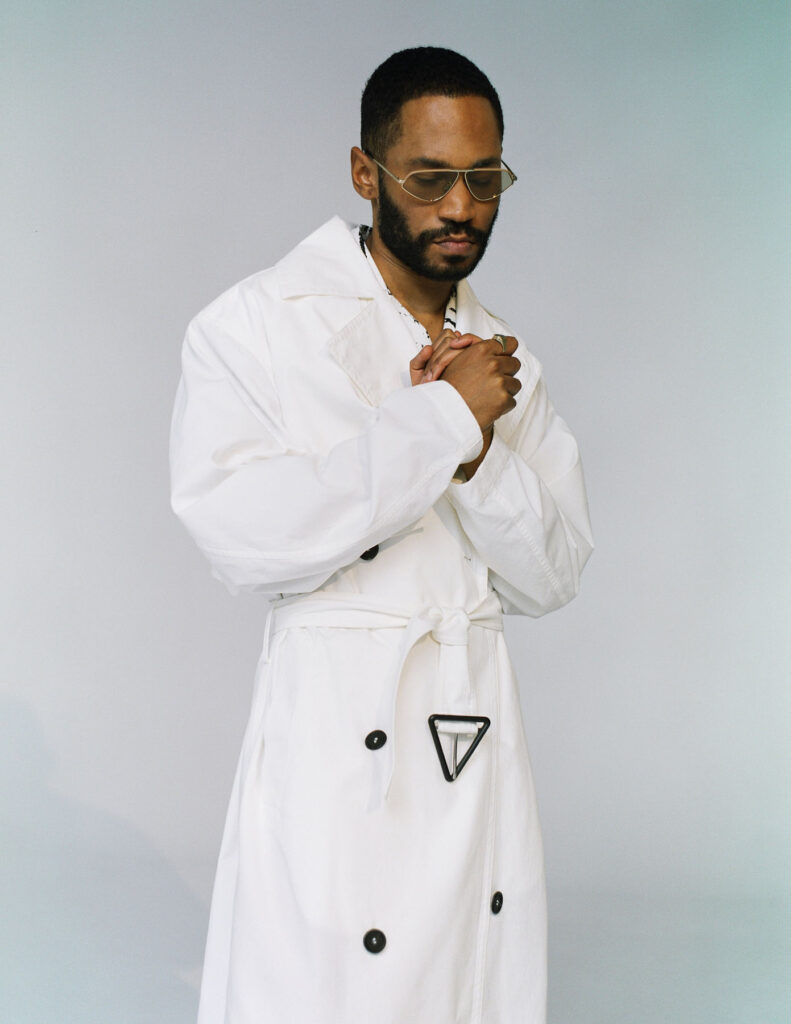
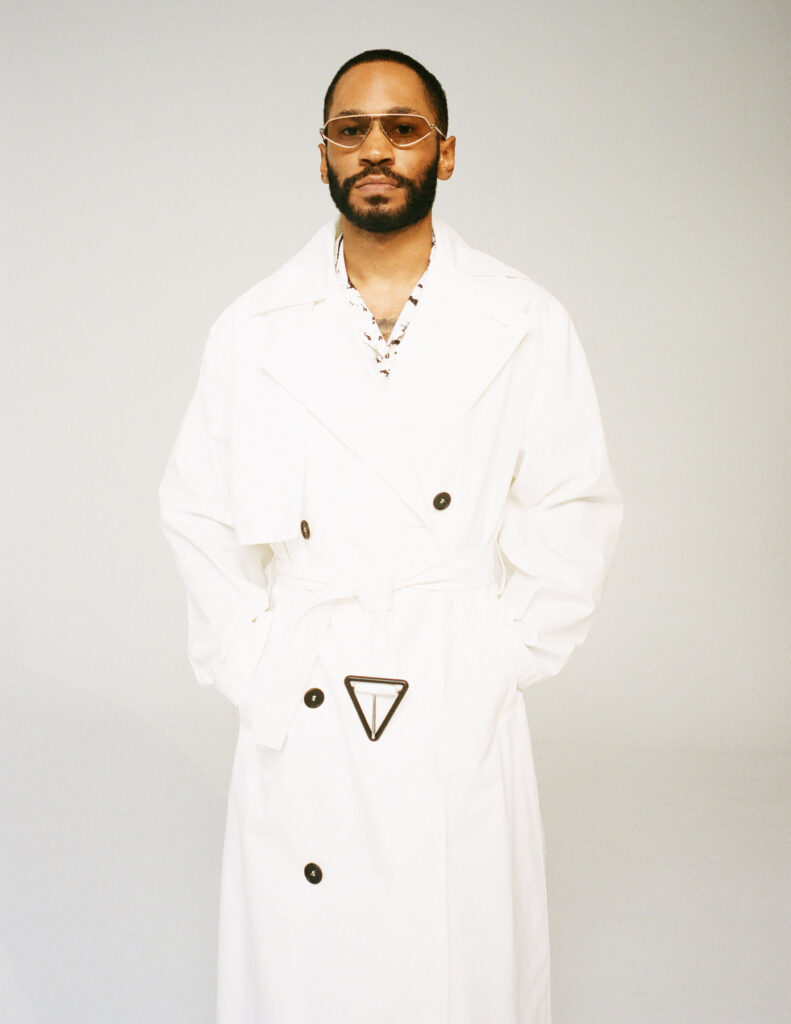
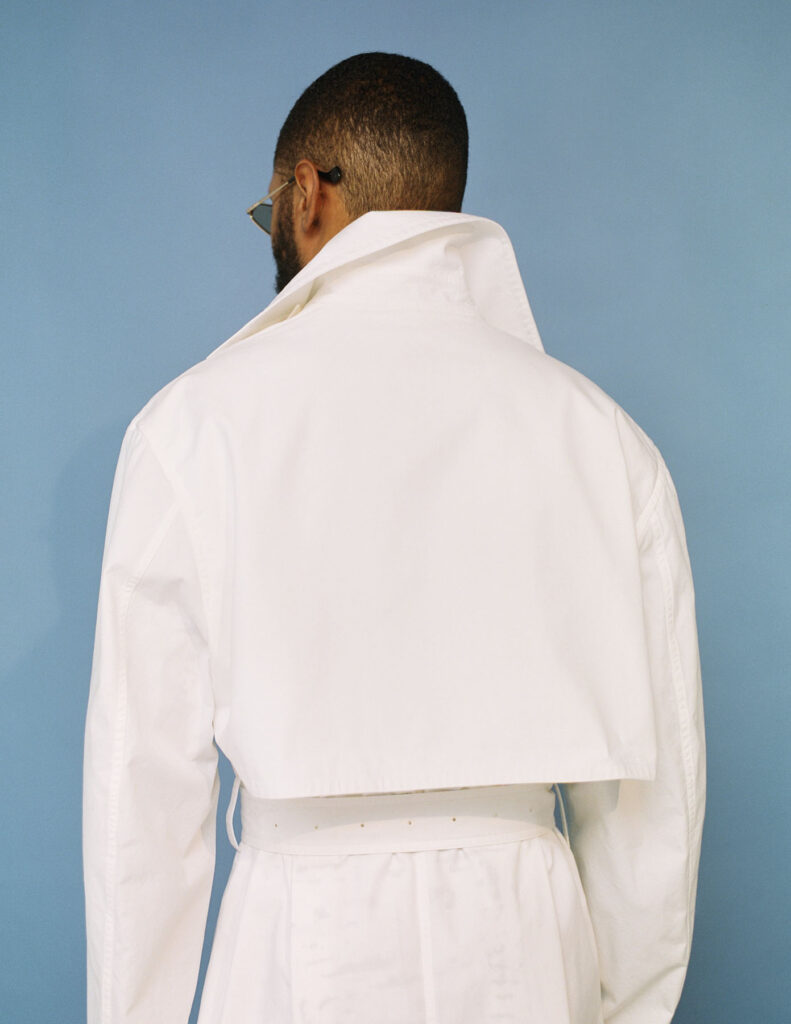
So let’s revisit how the year went down; how did going into lockdown unfold for you?
Okay, so– the pandemic was hard for me. I had a tour planned after putting out Bubba in December, so I was ready to go on tour for April-May-June then go to Europe after that– I had my whole year planned. I had done the Australian tour in January, which was amazing but a lot of problems came after that and everything kind of went down.
I was in LA when the pandemic happened and I was working with people, on what was perhaps going to be the second part of Bubba that I was talking about, which didn’t happen because I had to go home right after doing the Need It video, and things went downhill…
I went through a breakup in June, and that really messed my head up at a crazy level and I don’t know why, it’s funny because I didn’t need anybody but the breakup was hard to take, and day-to-day life, making beats, was harder than it used to be, I really lost myself.
I grieved for I guess 3 weeks then I got up like, you know what– I’m not gonna spend my whole summer crying and shit– so I went to my friend’s studio. Alex from BADBADNOTGOOD got a nice farm somewhere in the countryside and we took shrooms, made a lot of beats. He has a beautiful spot, a bunch of vintage synths, a nice lake in the back, all to him and his fiancé… it’s amazing, his dogs are very nice, his cat too, that’s the best shit ever for me… I regret not going earlier or more, but next year I definitely will. Even when we’re not making music, we’re just listening to records, we talk about records a lot, so he just brings out the dopest Brazilian records.. and we just sunbathe and drink wine. That’s the fucking Life, I swear.. so it was really that state of mind…
«I tried to distract myself from this breakup and I managed to have one of the best summers I’ve ever had still. Maybe less beats, but all the beats that I made were made on purpose and were dope. I found a new formula, I felt elevated.»
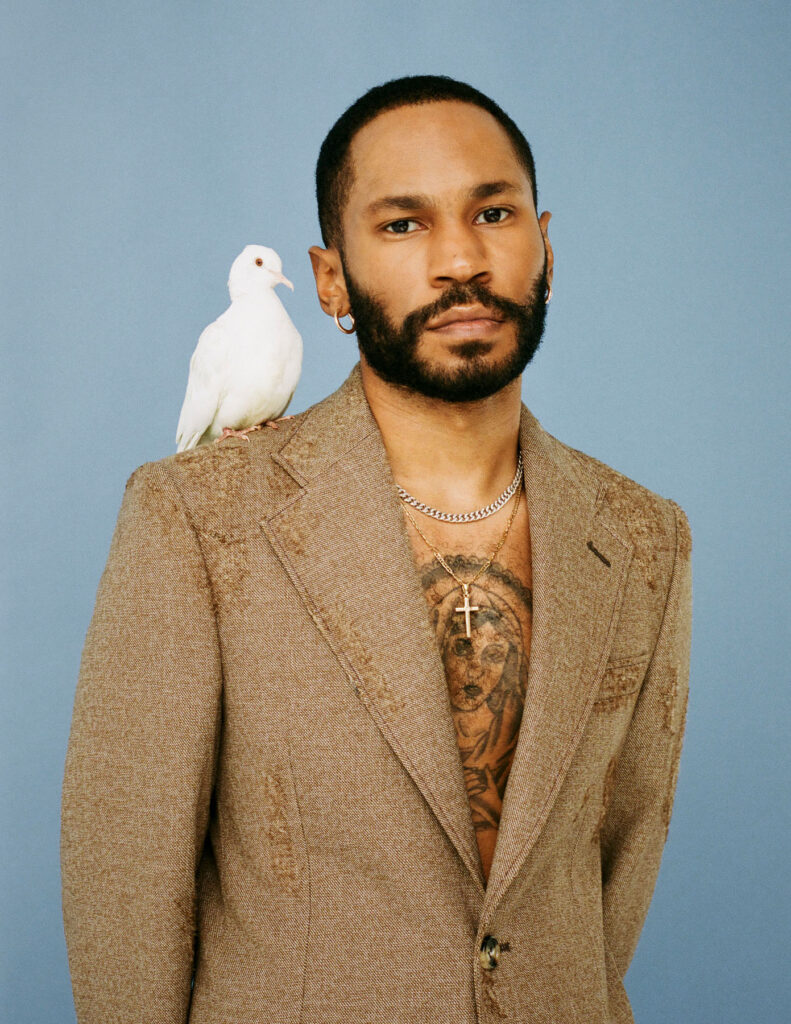
Your creative process?
Yeah, my approach is so different now, and I sample less too, which is crazy.. all my records are just sitting there not being sampled it’s just weird. *laughs* Now I just rather create my own samples and add drums at the end and its a completely original production. It feels great to have that.
A lot of things have been leading you back to yourself.
Yeah, sort of.. even this breakup made me want to go to therapy, so I started therapy for the first time and it really blew my mind. I didn’t know why self-love was so important– why loving myself was so important… seeing friends that remind you that you’re the shit, because I was so invested in my relationship. When I was freshly single it was like «okay I gotta find distractions I guess«; good distractions– my friends really helped me, all the people that were there for me this summer, I didn’t know I had that many true friends.
Having folks really show up for you.
Yeah, so on top of that it just feels good to have that, and realizing in the long term, «okay this is connected to what happened before: this is why I act this way, this is why I react this way to this breakup«, its all related to what I’ve been through before, and who I am today. It was really an awakening I had inside of me, being in touch with myself and now I feel good about being by myself too.
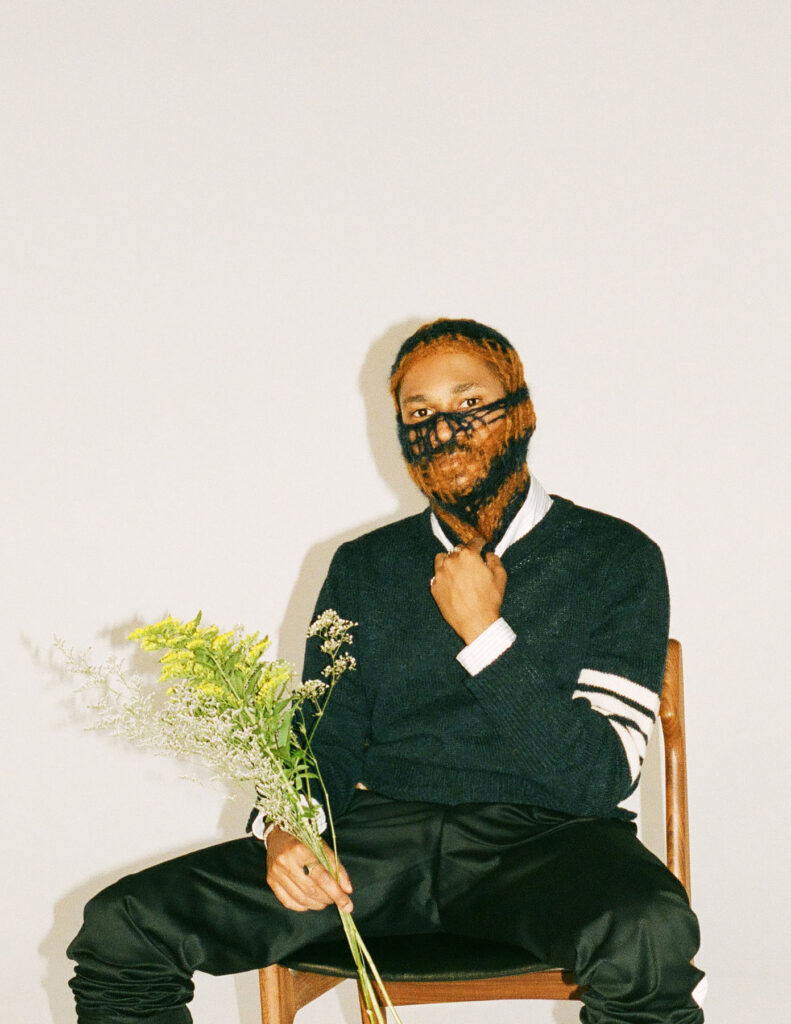
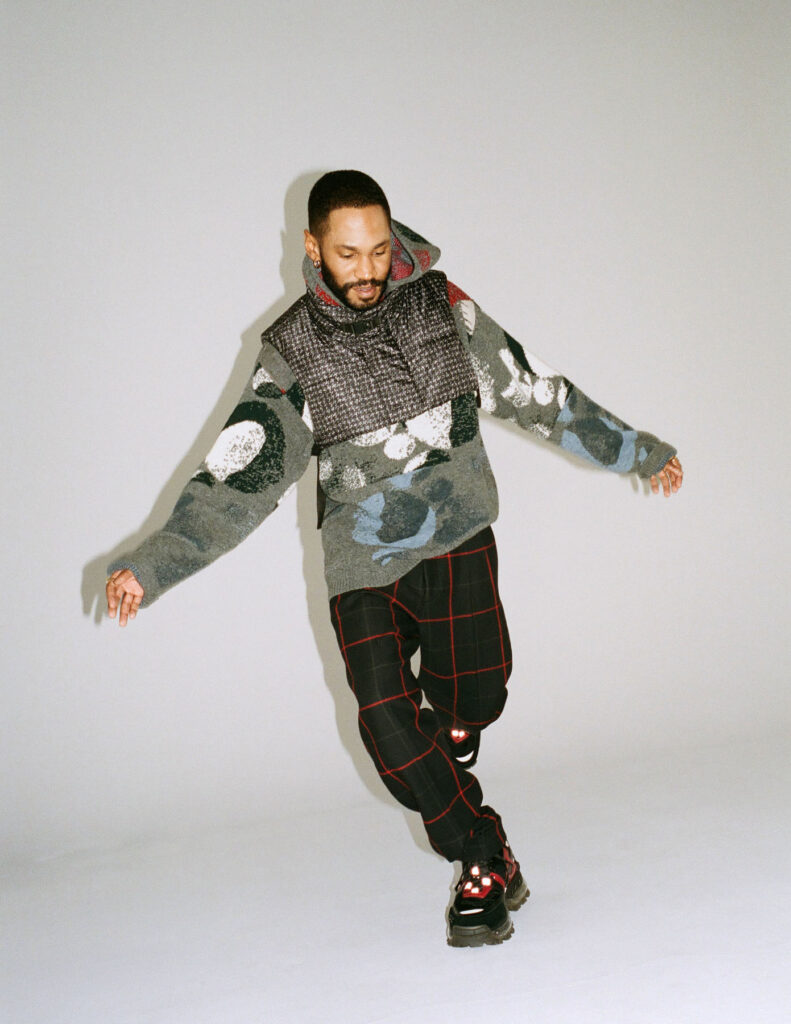
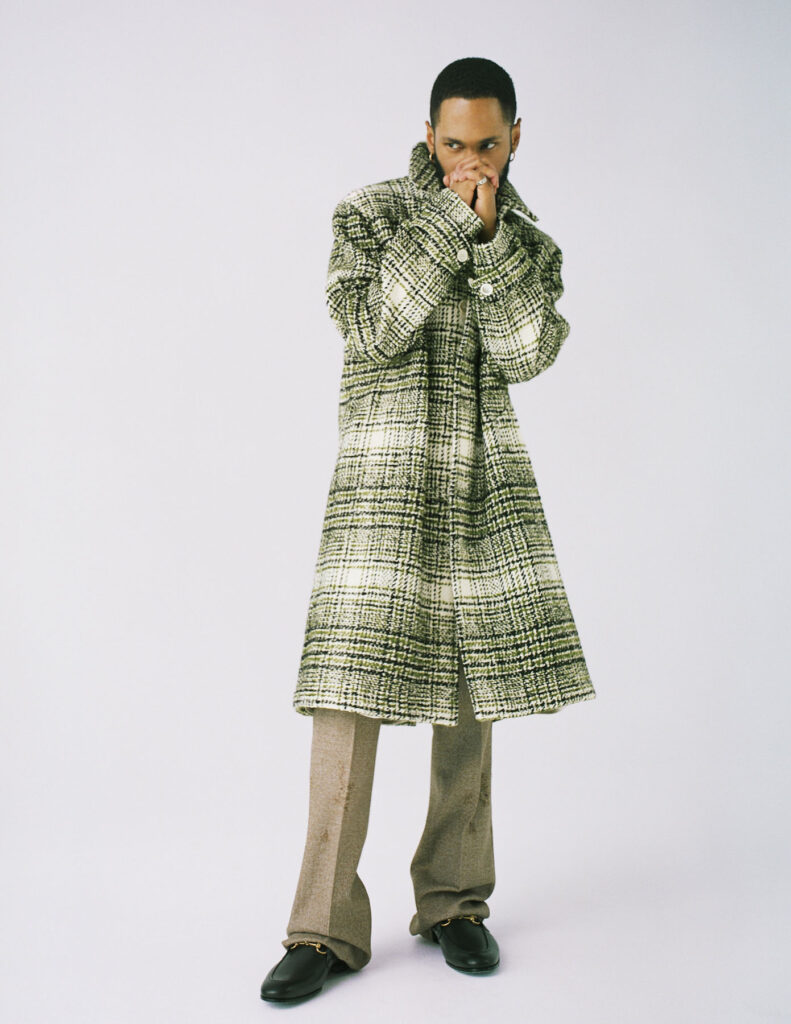
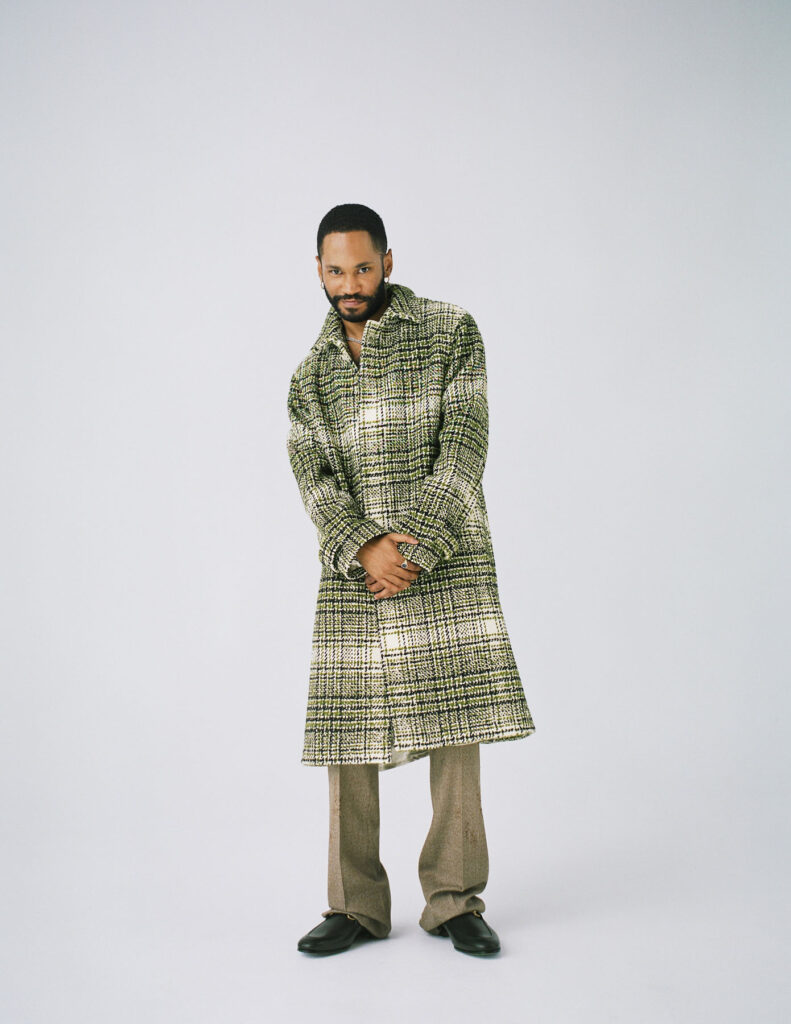
What are some self-care habits that have helped with that?
Meditating, reading at least 15 minutes a day, making beats, reaching out to people and collaborating more, going to the farm, spending time in silence.
Team
Photography KANE OCEAN
Fashion SAMUEL FOURNIER
Interview ALEX MOHAMMAD
Creative Direction NIMA HABIBZADEH and JADE REMOVILLE
Grooming CAROLE MÉTHOT
Prop Stylist ANA LONTOS
Photo Assistant SAM NOVACK
Dove Provided by Alan Greenberg
Stream BUBBA now
Designers
- Full Look CALVIN KLEIN JEANS Jewellery Talent’s own
- Full Look CALVIN KLEIN JEANS Jewellery Talent’s own
- Full Look BOTTEGA VENETA at HOLT RENFREW Jewellery Talent’s own
- Jumper CHARLES JEFFREY LOVERBOY Trousers ECKHAUS LATTA
- Full Look BOTTEGA VENETA at HOLT RENFREW Sunglasses LOEWE at HOLT RENFREW
- Blazer MARNI Jewellery Talent’s own
- Full Look THOM BROWNE at HOLT RENFREW Mask RAF SIMONS
- Full Look EMPORIO ARMANI
- Jacket and Trousers MARNI Shoes GUCCI at HOLT RENFREW
